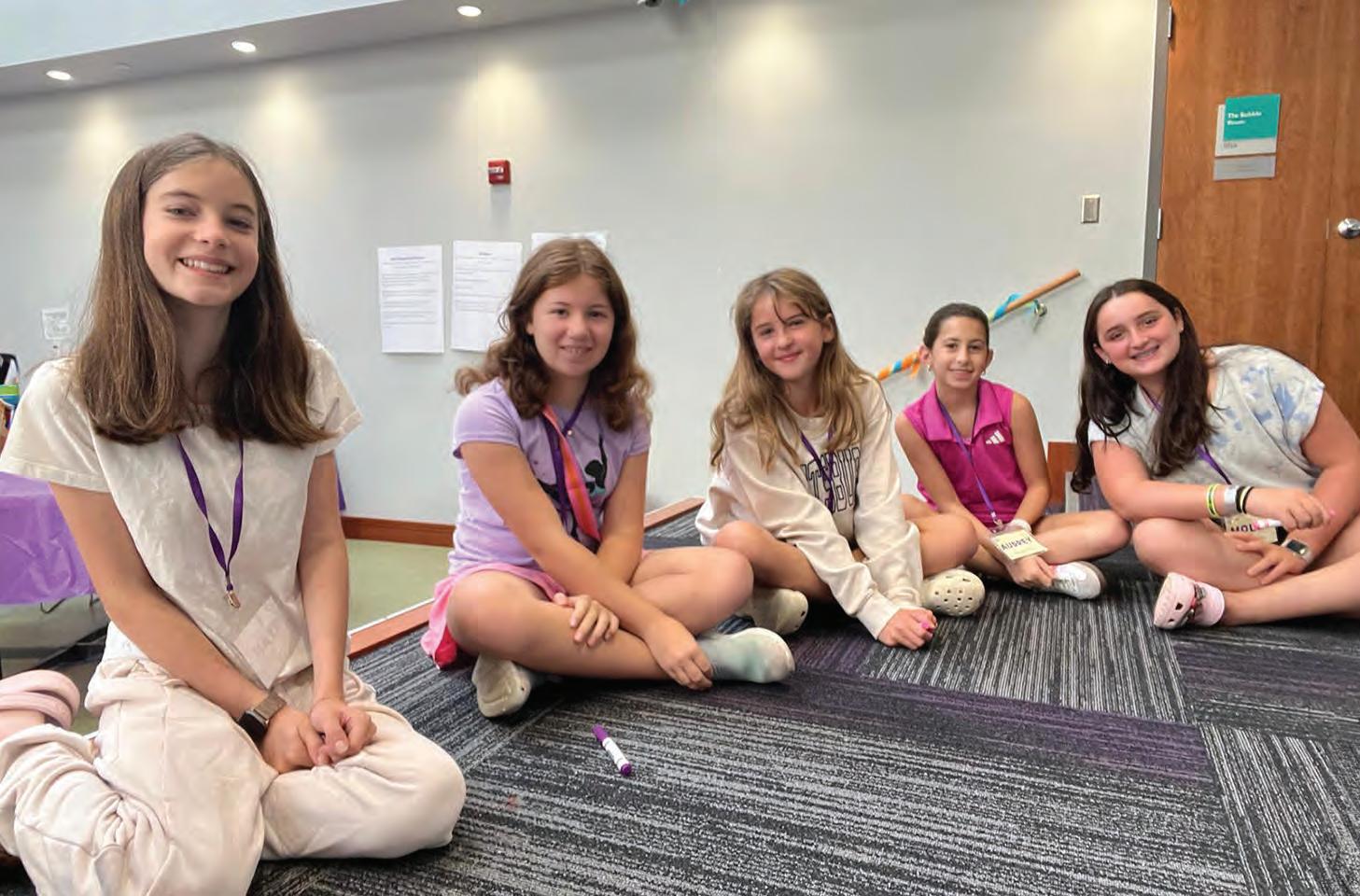
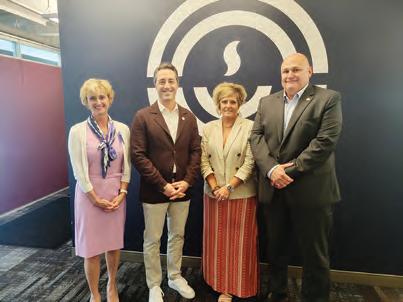



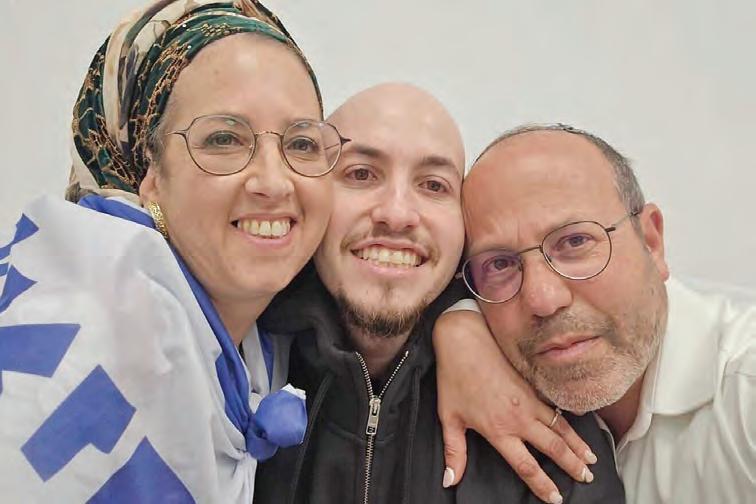
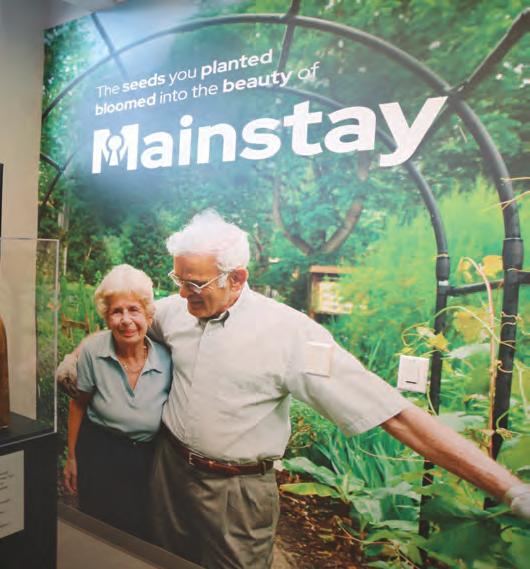
By Charles Bybelezer, Akiva Van Koningsveld | JNS
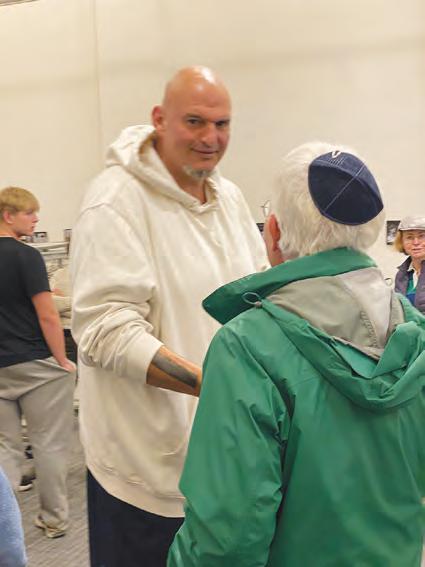


srael on Monday morning saw the return of all 20 living hostages from Gaza, two years after their kidnapping by Hamas during the Palestinian terrorist group’s Oct. 7, 2023 massacre. Their return is part of the first phase of U.S. President Donald Trump‘s plan to end the war in the Gaza Strip.
The hostages were released in two waves, the first comprising Matan Angrest, twin brothers Gali and Ziv Berman, Guy GilboaDalal, Omri Miran, Eitan Mor and Alon Ohel.
The seven, accompanied by Israel Defense Forces and Israel Security Agency officers, crossed into Israel at around 9:30 local time, according to the IDF.
“Our beloved Eitan, how long we have waited for you, how long we have waited to finally see you after two years. The last time we saw you was today two years ago, on the Hoshana Rabbah [holiday], and today we embrace you once again,” said Eitan’s parents, Tzvika and Efrat Mor.
“Our Eitan has come back to us thanks to the commanders and soldiers of the IDF and other security forces, our heroes who went out with self-sacrifice to destroy the enemy,” they continued, thanking the
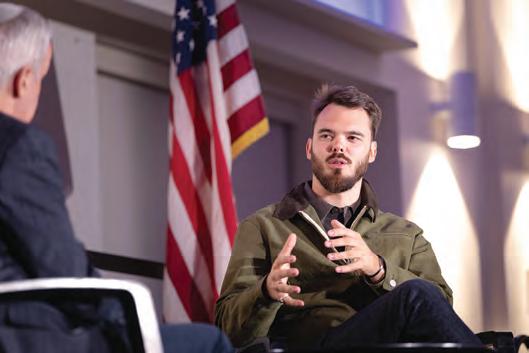
government and people of Israel, as well as Trump.
Hours after the initial release, an additional batch of 13 Israeli captives was handed over by Hamas to the Red Cross in the southern Gaza Strip.
The second batch included Elkana Bohbot, Rom Braslavski, Nimrod Cohen, brothers David and Ariel Cuneo, Evyatar David, Maxim Herkin, Eitan Horn, Segev Kalfon, Bar Kupershtein, Yosef-Haim Ohana, Avinatan Or and Matan Zangauker.
“It’s official: There are no more living Israeli hostages in Hamas captivity,” the IDF wrote in a social media post upon their return.
The Israeli Prime Minister’s Office said that all government agencies would continue to accompany the freed hostages and their families “throughout the entire process of reception and rehabilitation.”
Israeli President Isaac Herzog tweeted, “And the children shall return to their own borders,” citing from the Book of Jeremiah.
“With thanks to God we welcome our loved ones home. We are waiting for everyone — every last one,” the Israeli head of state added.
By Adam Reinherz | Senior Sta Writer
n evening of commemoration created space for remembrance and hope. Hours before the 20 living hostages were released from Gaza and returned to Israel, nearly 500 Pittsburghers gathered at the Jewish Community Center in Squirrel Hill on Oct. 12 for a Jewish Federation of Greater Pittsburgh-hosted event marking two years since the start of the Israel-Hamas war.
The program served multiple purposes, Federation’s Community Relations Council Chair David Knoll said. The goal was not only to recall the horrifying events of Oct. 7, 2023, and mourn the lives lost, but to “embrace hope.”
In the 736 days since the start of the Israel-Hamas war the “world has changed,” Federation CEO and President Jeffrey Finkelstein said. “History shifted on that day, and the aftershocks are still with us.” Among the most notable consequences of Oct. 7 are the proliferation of antisemitism “on campuses, online, in the streets of our cities,” as well as a questioning of “Israel’s

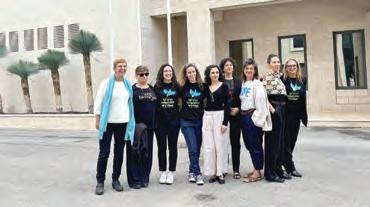
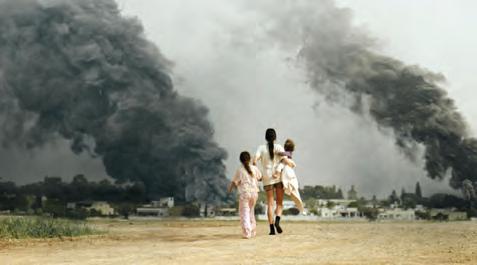
By David Rullo | Senior Staff Writer
The Jewish Federation of Greater Pittsburgh and the Secure Community Network have expanded a partnership that has existed for nearly a decade.
The two organizations recently announced the launch of SCN’s Embedded Analyst Program, an integrated threat management initiative designed to enhance security for Pittsburgh’s Jewish community.
As part of program, SCN will place an analyst in Pittsburgh at Federation’s office. The analyst will work to identify, manage and report local threats.
The Enhanced Analyst Program, SCN said in a press release, will allow Federation to plug into SCN’s network of security professionals, knowl edge base, training programs and AI technology for advanced threat detection, management and nationwide information sharing.
Shawn Brokos, Federation’s community secu rity director, said the new program is “one more step in building our security team so that all of us here in Pittsburgh can be prepared and as proactive as possible.”
In the past, Brokos said, threats were often run through SCN’s Jewish Security Operations Command Center based in Chicago. Typically, Federation would send JSOC one or two concerns a day. The information sent back would help the Federation make informed decisions about potential threats.
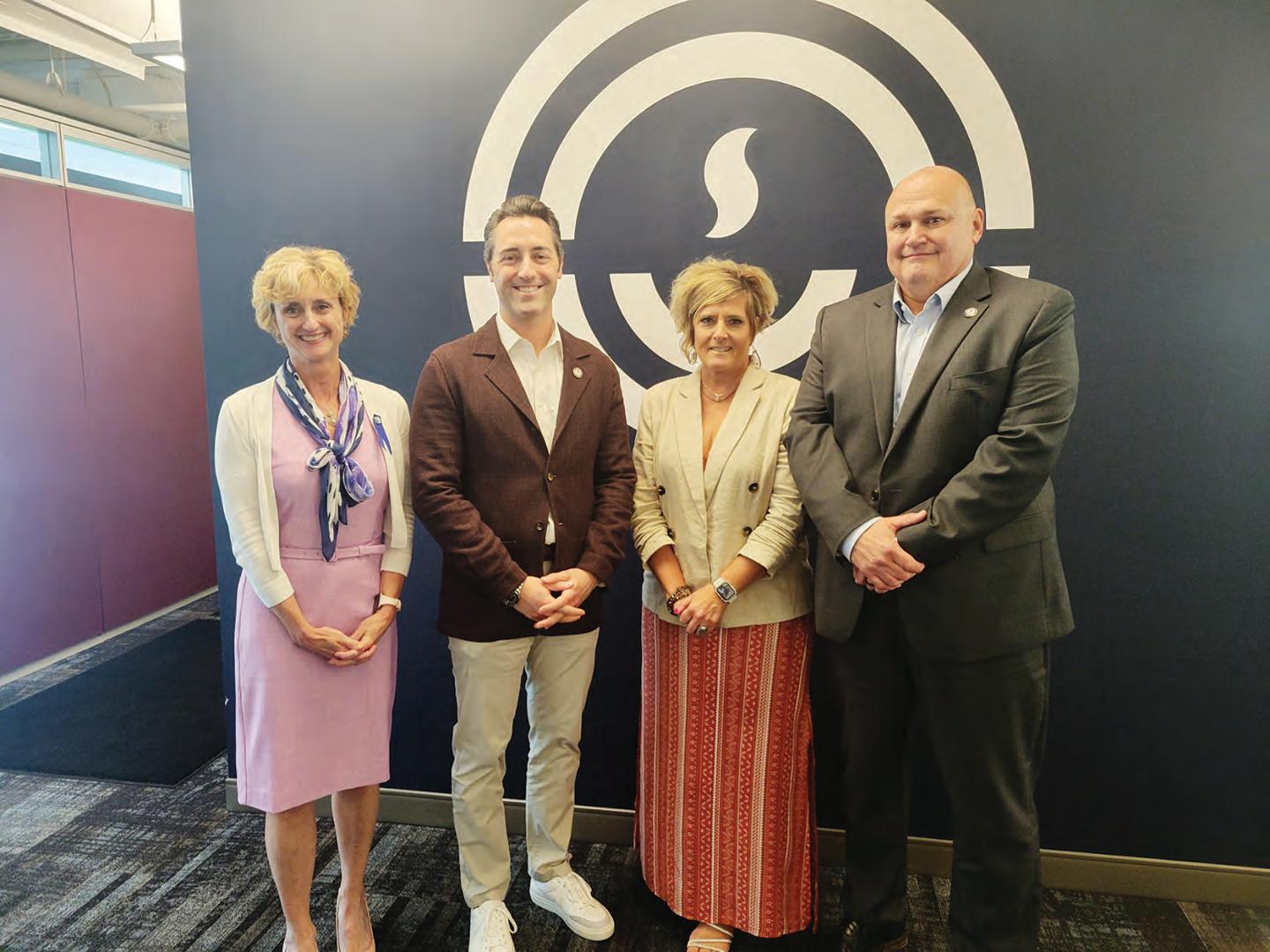
security efforts and experts to create one fully integrated security network.
That being said, Masters noted that Pittsburgh’s Jewish community has been impacted by events unlike anywhere else. Brokos, too, said that the threat level in Pittsburgh is unique.
“What has happened since Oct. 7, with the Hamas attack in Israel, is that we have seen the rise of more local antisemitic groups,” Brokos said. “It’s very important for us, here in Pittsburgh, to track those local groups.”
As threats continued to rise, she said, it became apparent that an analyst dedicated exclusively to Pittsburgh was needed.
Federation has been in conversation with SCN for nearly a year, Brokos said, noting that
p The Jewish Federation of Greater Pittsburgh and the Secure Community Network are deepening their longstanding relationship. (From left) Jewish Federation of Greater Pittsburgh Community Security Director Shawn Brokos; SCN National Director and Chief Executive Officer Michael Masters; Federation Security Associate Erin Fagan; and SCN National Security Director Brad Orsini
“I’ll give you an example,” she said. “During the Maccabi Games, we were concerned about potential threats from some of our cally known and national hate groups. The Maccabi Games had occurred in Tucson, Arizona, a week before Pittsburgh and we asked them if they had any threats, and they hadn’t had one. We had already fielded ncerning information for at least a month.”
When it comes to Pittsburgh, Brokos said, there are a significant number of hate groups commingling with white supremacist groups as well as those who hate Israel. The result, she said, is a threat level equal to that in New York and California.
e Embedded Analyst Program will become part of Jewish Pittsburgh’s security, which includes awareness, target hardening, training and law enforcement liaison.
threats like those posed by the Pittsburgh synagogue shooter and turn them over to law enforcement before they are realized.
“We have to make sure our finger is on the pulse and that’s what this analyst will provide us,” she said.
Michael Masters, SCN’s national director and CEO, called the relationship with Pittsburgh’s Federation “long and strong.”
He said that since the Pittsburgh synagogue shooting on Oct. 27, 2018, there has been an increased threat environment requiring a targeted effort to identify bad actors and keep the community safe. An example of that, he said, was the command
Masters explained.
Included as part of that effort are the Jewish Security Office Command Center; Project RAIN, an AI-enabled national threat identification, management, information-sharing, case management and alert technology platform; and, National Centers of Excellence, providing best-practice tools, materials and curriculum for assessing and protecting institutions, ensuring emergency preparedness and delivering lifesaving training for community members and organizations.
Pittsburgh joins Boston as part of SCN’s “Virtual Shield,” meant to blend the organization’s technology platform, national database, analysts and knowledge base, along with local

SUBSCRIPTIONS subscriptions@pittsburghjewishchronicle.org 412-687-1000, ext. 2
TO ADVERTISE advertising@pittsburghjewishchronicle.org 412-687-1000, ext. 1
EDITORIAL DEPARTMENT
Email: newsdesk@pittsburghjewishchronicle.org
BOARD OF TRUSTEES
Evan H. Stein, Chair
Evan Indianer, Vice Chair
Derek Smith, Treasurer
Gayle R. Kraut, Secretary
Gail Childs, Dan Droz, Malke Steinfeld Frank, Seth Glick, Judith Kanal, Cátia Kossovsky, Charles Saul
GENERAL COUNSEL
Stuart R. Kaplan, Esq.
Jim Busis, CEO and Publisher 412-228-4690 jbusis@pittsburghjewishchronicle.org
EDITORIAL Toby Tabachnick, Editor 412-228-4577 ttabachnick@pittsburghjewishchronicle.org
Adam Reinherz, Senior Staff Writer 412-687-1000 areinherz@pittsburghjewishchronicle.org
David Rullo, Senior Staff Writer 412-687-1000 drullo@pittsburghjewishchronicle.org
ADVERTISING Amy Weiss, Account Executive (412) 613-0697 aweiss@pittsburghjewishchronicle.org
PRODUCTION
Jeni Mann Tough
Production Manager
Carl Weigel
Art/Production Coordinator
“This is one of the tools we’ll use in a layered security approach,” Brokos said. “We have done so much work with target hardening and making our facilities safe and secure. We’ve done so much training — we’ve trained over 35,000 members of the Jewish community — and we have great relationships with law enforcement. Threat mitigation is essential; we’re bolstering that with this program.”
Jeff Finkelstein, Federation president and CEO, said that since 2016, the organization has worked to build a top-quality security program.
“This continued evolution and expansion of our capacities and abilities will strengthen our blanket of security over Jewish Pittsburgh. We are proud of our close relationship with SCN and look forward to deepening it.” PJC
David Rullo can be reached at drullo@ pittsburghjewishchronicle.org.
5915 Beacon St., 5th Floor Pittsburgh, PA 15217
Main phone number: 412-687-1000 Subscriptions: 412-687-1000, ext. 2
Subscriptions subscriptions@pittsburghjewishchronicle.org 412-687-1000, ext. 2
Published every Friday by the Pittsburgh Jewish Publication and Education Foundation 5915 Beacon St., 5th Floor Pittsburgh, PA 15217
Phone: 412-687-1000
POSTMASTER: Send address change to PITTSBURGH JEWISH CHRONICLE, 5915 BEACON ST., 5TH FLOOR PITTSBURGH, PA 15217
(PERIODICAL RATE POSTAGE PAID AT PITTSBURGH, PA AND AT ADDITIONAL MAILING OFFICES) USPS 582-740
Manuscripts, letters, documents and photographs sent to the Pittsburgh Jewish Chronicle become the property of this publication, which is not responsible for the return or loss of such items.
The Pittsburgh Jewish Chronicle does not endorse the goods or services advertised or covered in its pages and makes no representation to the kashrut of food products and services in said advertising or articles. The publisher is not liable for damages if, for any reason whatsoever, he fails to publish an advertisement or for any error in an advertisement. Acceptance of advertisers and of ad copy is subject to the publisher’s approval. The Pittsburgh Jewish Chronicle is not responsible if ads violate applicable laws and the advertiser will indemnify, hold harmless and defend the Pittsburgh Jewish Chronicle from all claims made by governmental agencies and consumers for any reason based on ads appearing in the Pittsburgh Jewish Chronicle
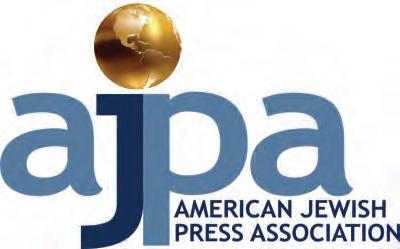
By David Rullo | Senior Staff Writer
The legacy of the late Rabbi Walter Jacob and his wife, the late Irene Jacob, continues to reverberate around the world
Serving as leaders of Rodef Shalom Congregation for more than 40 years, the Jacobs also were instrumental in the creation of the synagogue’s Biblical Botanical Gardens.
After retiring as senior rabbi of Rodef Shalom in 1997, Walter Jacob worked with Rabbi Walter Homolka to found the Abraham Geiger College in 1999. Located in Potsdam, Germany, the rabbinic seminary was the first established in continental Europe since the Holocaust. More than 57 rabbis and cantors have graduated from the school.
The Jacobs were celebrated earlier this month for another accomplishment: helping to create and continuing to support Mainstay Life Services, a nonprofit that delivers person-centered care to individuals with intellectual disabilities and autism.
Mainstay’s story began in 1969 when the Jacobs, and a small group of other parents, established Horizon Homes after the birth of their daughter Claire, who was born with a disability and needed permanent living accommodations.
In 1999, Horizon merged with Idlewood Center, which provided similar services, becoming Mainstay Life Services, located in Pittsburgh’s South Hills.
Nearly six decades after its founding, Walter Jacobs, who died in 2024, continues to support the organization.
Shortly after his death, the organization was approached by Mahnaz Harrison, a longtime friend of the rabbi and the executor of his will.
Harrison told Mainstay CEO Kim Sonafelt that Jacob had left money to support “three things that were close to his heart.” Mainstay was one of those things.
While not disclosing the amount, Sonafelt called the gift “substantial.”
“It’s not an endowment or anything like that,” she said. “However, it was substantial, and we’ll be good stewards with that, those dollars, to try and make sure that it impacts as many people’s lives as possible.”
Mainstay paid homage to the Jacobs’ legacy and the monetary gift during an Oct. 6 celebration that included a ribbon cutting on a new portion of the organization’s headquarters that includes permanent photos of the couple and a chair, originally brought from Rodef Shalom, that was used by Claire.
Harrison, Walter Jacob’s executor, spoke at the celebration, noting that “volumes could be written about these two amazing people.”
Rather than focus on the well-documented good work the Jacobs accomplished, Harrison instead highlighted what she said was “the pain they endured during their lives,” and how they met that pain with “courage and conviction,” which became “a foundation for meaningful change.”
Harrison recounted the journey the Jacobs traveled with their daughter.
“Within a year, they realized that there wasn’t much they could do beyond what they were doing,” she said. “They couldn’t
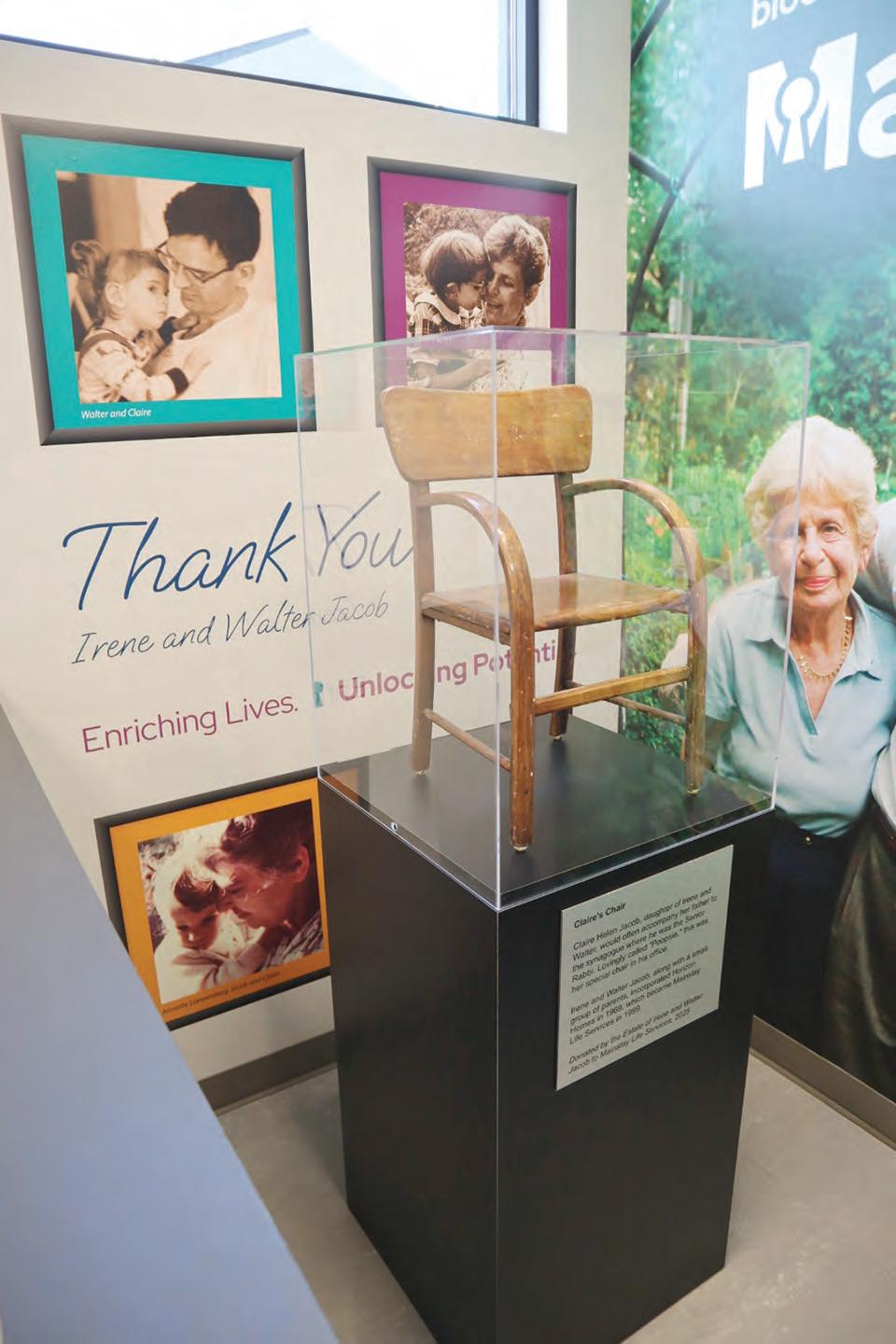
be what was considered normal,” Harrison said. “They cherished the life of this child and embraced her with full force to let her live a full life.”
It was the pain of knowing Claire would never be able to move beyond her physical limitations that led to the creation of Horizon Homes, she said.
“They started with $200 in a bank account but needed $30,000,” she said. “They
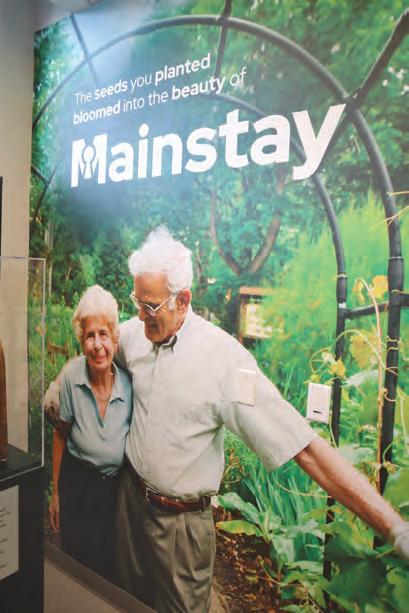
“That’s everything from homes where people live by themselves or with roommates,” Sonafelt said. “We have community-based services, supported employment, behavioral supports. We do a lot of what we call remote support — we have both in-person and remote support staffing professionals helping people be as independent as possible.”
And, over the last two years, Mainstay has started to assist children with medical complexities, she said.
“Two years ago, children were spending a lot of their time living in institutions and hospitals. Kids never lived with their families. Over the last two years, we now have 16 families with kiddos from very young to teenagers that are now living with their families, and we support them by paying them a stipend and helping with their case management needs,” she said.
The Jacobs’ legacy has created a “butterfly effect” felt all over the world, Sonafelt said.
“What was started in the East End in 1969 is now reaching so many people. These parents had a need for their daughter and started doing something against what was then a lot of opposition. And now we have over 42 homes where people live. I am also super impressed with the work of the seminary in Germany. It just really impacts people’s lives.” PJC
David Rullo can be reached at drullo@ pittsburghjewishchronicle.org.

We utilized Stephanie to help us choose our health care plan. She was knowledgeable, professional, diligent and patient throughout our discussions. She listened to our needs, studied our current medical situations and helped us choose the appropriate plan. All of our needs and concerns have been met and we are grateful for her extraordinary help. We could not have navigated this process without her assistance.Thank you Stephanie!
SINCERELY,
BARRY FAIGEN

By Jacob Magid | The Times of Israel
In the days following Israel’s Sept. 9 missile strike targeting Hamas’ leaders in Doha, as the limited nature of the results began to crystallize, Prime Minister Benjamin Netanyahu chose to double down on the decision, which had galvanized the entire region against him like never before.
“It didn’t fail, because it had one central message, and we considered it before we launched it, and that is, you can hide, you can run, but we’ll get you,” the premier asserted, while standing alongside U.S. Secretary of State Marco Rubio.
Less than three weeks later, though, Netanyahu was in the Oval Office, holding a phone handed to him by President Donald Trump and reading a scripted apology to Qatari Prime Minister Mohammed Abdulrahman Al Thani, who was on the other end of the line.
“It was the sort of thing that mature people do. That got us some leverage,” a senior U.S. official said, as he reviewed how the Trump administration managed to broker an agreement ending the Gaza war after two years.
The Doha strike initially saw a deterioration in conditions for an agreement, with some hostage families who traveled to meet with Trump officials in Washington leaving town convinced that the administration was drifting away from their issue.
The strike “caused a lot of angst within the Arab world,” said the senior U.S. official involved in the negotiations during a briefing with reporters last week. “There was a sense that it shouldn’t happen. There was a sense that if it did happen, it could happen to other countries.”
But it was during this period of doubt that U.S. special envoy Steve Witkoff and his effective predecessor during Trump’s first term, Jared Kushner, began crafting a plan aimed at ending the war in Gaza and rebuilding trust between Israel and its Middle Eastern neighbors.
Because while Witkoff and Kushner recognized a mounting, regional-wide anger with Israel, they also “began to detect that Hamas had had enough.”
Hamas “fought hard. But this was a conflict that was [affecting] every family in Gaza … Gazans don’t just blame Israel for this conflict. They, in large part, were blaming Hamas for it. We began to sense that and turn that into leverage,” the senior U.S. official said.
Determined to craft a plan that leveraged the crisis, Witkoff and Kushner borrowed principles and ideas from previous hostage deal proposals along with existing frameworks for ending the war, while consulting closely with Al Thani, who was fully on board with the effort following Netanyahu’s apology, the senior U.S. official said.
The resulting document was then presented on the sidelines of the U.N. General Assembly by Trump to U.S.-allied countries in the Arab and Muslim world, whose support will be needed in the post-war stabilization and management of Gaza.
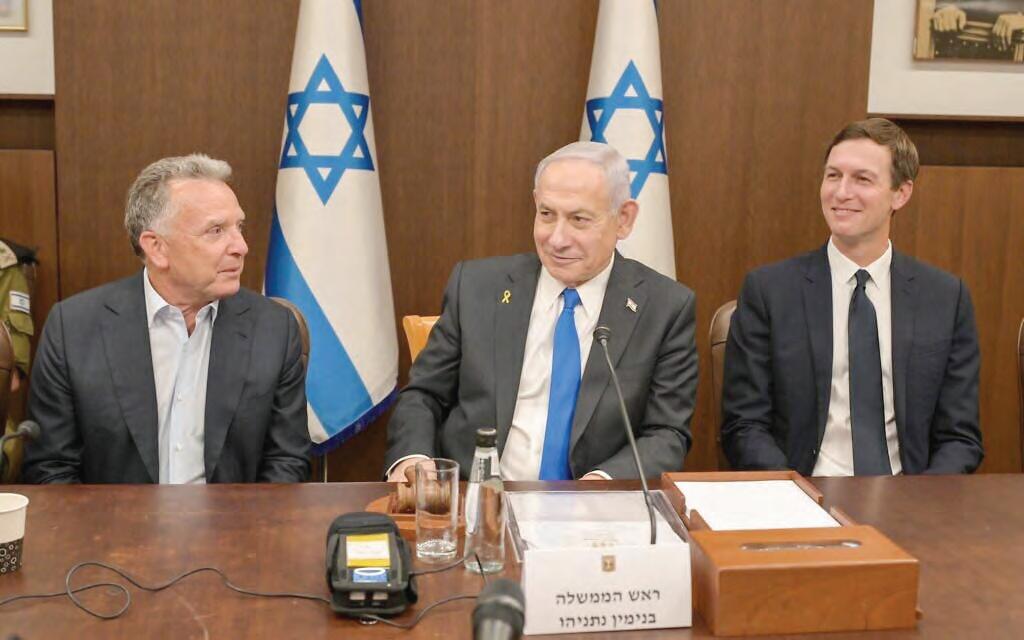
The plan was adapted to take their feedback into account, and a similar revision process unfolded after the document was shared with Netanyahu over the last weekend of September.
The 20-point proposal was then unveiled by the White House as Trump stood beside Netanyahu, who moments prior had agreed not only to apologize to Qatar but to back a plan that could well lead to the collapse of his government, as it envisions an immediate end to the war, a gradual Israeli withdrawal from Gaza and the creation of a potential pathway to a Palestinian state.
Explaining why the U.S. was able to get Netanyahu on board with ending the war — something the Biden administration was unable to do, despite such a result arguably being more desired by Democrat voters — a senior Trump aide who was also on the Thursday briefing touted his boss’s “proven formula” that has seen him reject the idea that the president needs to be a “middle of the roader.”
Trump has “stood shoulder to shoulder with Israel 100 percent. And because of that, he’s been able to help guide them in the right direction,” the aide said. “Israel has a lot of trust in President Trump that he’s not going to ask [it] to do anything that would compromise [its] security.”
When the hostages became a liability instead of an asset for Hamas
With Israel on board, Trump only needed several days and an ultimatum for Hamas to follow suit.
“We felt that Hamas was at a place … where [it] was looking at the hostages less as an asset and more as a liability,” the senior U.S. official said.
The terror group issued a statement on Oct. 3 welcoming parts of the deal — most
critically, the U.S. plan’s envisioning of the up-front release of all remaining hostages — while indicating that it had disagreements with subsequent phases regarding the “day after” in Gaza.
While Netanyahu read Hamas’ reply as an effective “No,” Witkoff and Kushner looked at it more positively, believing that there was enough there for them to work with.
Trump asked Witkoff and Kushner, “What are the odds of a deal?”
They responded, “‘100%… Because we can’t afford to fail, so we have no choice but to get a deal done,’” the senior Trump aide said.
Trump told them, ‘“Anything you need me to do, anything you need me to stand behind. You have the full authority to go and do what needs to be done to make a deal,’” the senior aide recalled. “That really gave us a lot of room to maneuver to get the final details across the line.”
Mediators from Qatar, Egypt and Turkey were then dispatched to Sharm el-Sheikh, Egypt, where they held technical talks with negotiating teams from Israel and Hamas on Monday and Tuesday.
Those talks progressed well, with the mediators managing to convince Hamas that Trump was prepared to stand behind every principle of the 20-point plan, including its envisioning of Israel’s complete, albeit phased, withdrawal from Gaza, the senior U.S. official said.
“Everyone will be treated fairly,” Trump has several times emphasized over the past month, as he has sought to keep Hamas on board with a plan that sees it lose what it long thought was its best leverage (the hostages) during the first 72 hours of the deal.
“He wanted both sides to understand that he was going to enforce good conduct here. That was a critical and overarching message that we were there to talk about, and it was
very well received,” the senior U.S. official said, adding that Trump was very involved in the Egypt talks from afar, repeatedly phoning in to speak with the mediators.
With momentum building, Witkoff and Kushner flew to Sharm el-Sheikh, arriving early Wednesday morning and immediately joining the negotiations along with top officials from all parties.
Critically, the sides agreed to separate the hostage release from the subsequent parts of the 20-point plan, leaving those thornier issues pertaining to the post-war management of Gaza for later rounds.
This paved the way for a breakthrough to be reached by Wednesday evening, as Middle Eastern mediators walked between ballrooms inside the same conference center where Israeli and Hamas negotiating teams were posted.
“We were going for 20 straight hours, and toward the end of that, we began to sense that everybody had moved to a place in the middle where we could see that there was a deal here,” the senior U.S. official said. “Once everybody could see the line, they wanted to cross it.”
Enough consensus had developed around all of the key issues surrounding the hostage-prisoner swap and Israel’s initial pull-back from Gaza so that, after 2 a.m., Witkoff and Kushner determined an announcement could be made.
Minutes later, one went up on Trump’s Truth Social account.
Celebrations in Gaza and Israel were immediate, and the excitement extended to Sharm el-Sheikh, where surreal scenes unfolded of Qatari mediators embracing their Israeli counterparts, as if the Doha strike hadn’t happened exactly one month prior.
By Toby Tabachnick | Editor
Pennsylvania Sen. John Fetterman was quick to issue a statement on social media following President Donald Trump’s Oct. 8 announcement of the hostage/ ceasefire deal between Israel and Hamas.
Fetterman, a Democrat and a staunch supporter of the Jewish state, praised the deal, and credited Trump for helping to make it happen.
On X, Fetterman reposted Trump’s announcement of the deal and wrote: “I congratulate POTUS on this historic peace plan that releases all the hostages. Now, enduring peace in the region is possible. Our parties are different, but we have a shared ironclad commitment to Israel and its people.”
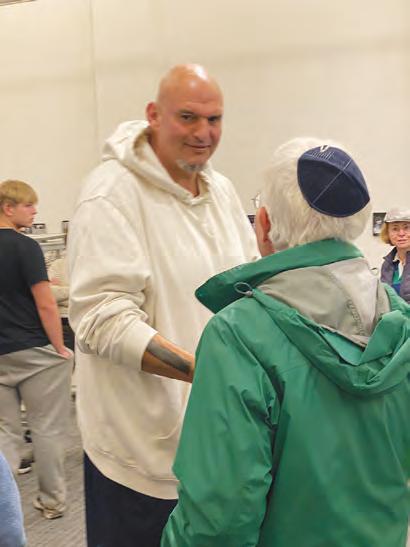
Pennsylvania Sen. Dave McCormick, a Republican, also commended Trump’s efforts toward peace in the Middle East on Oct. 8 in a post on X:
“Thanks to President Trump, his team, and all the negotiators, our prayers and calls to bring the hostages home may soon be answered. This first phase represents critical progress and we must work quickly to ensure the remainder of the president’s 20-point peace plan becomes a reality.”
we continue to work for true, just, and lasting peace, this deal must hold.
“We owe it to every Palestinian killed, every home and hospital destroyed, to demand accountability for the war crimes committed, and we must keep pushing for an end to the occupation.”
Lee, who did not mention the Israeli
“Today is a day of great relief as after 738 days, the last 20 living Israeli hostages held by Hamas have finally come home to their families.”
–GOV. JOSH SHAPIRO
On Oct. 9 on X, Rep. Chris Deluzio, a Democrat representing Pennsylvania’s 17th District, which covers much of Allegheny County, including Mt. Lebanon, Scott and Fox Chapel, praised the deal, acknowledging both the Israeli hostages and the suffering in Gaza.
“After two bloody years of war, this agreement may finally bring the hostages home, end the humanitarian crisis in Gaza, and create an enduring two-state peace,” Deluzio wrote. “I commend the American leadership — including President Trump’s — and diplomacy that led to this moment, and I hope all parties work in good faith to realize the full, American-backed peace plan and put an end to this heartbreaking war.”
Rep. Summer Lee, who represents Pennsylvania’s 12th District, which includes Squirrel Hill, began calling for a ceasefire in the region just days after Hamas attacked Israel on Oct. 7, 2023. Still, she was publicly silent about the ceasefire deal until Friday, when she posted the following on social media:
“A ceasefire in Gaza is a critical step to ending the genocide, surging aid, and reuniting Palestinian and Israeli families. As
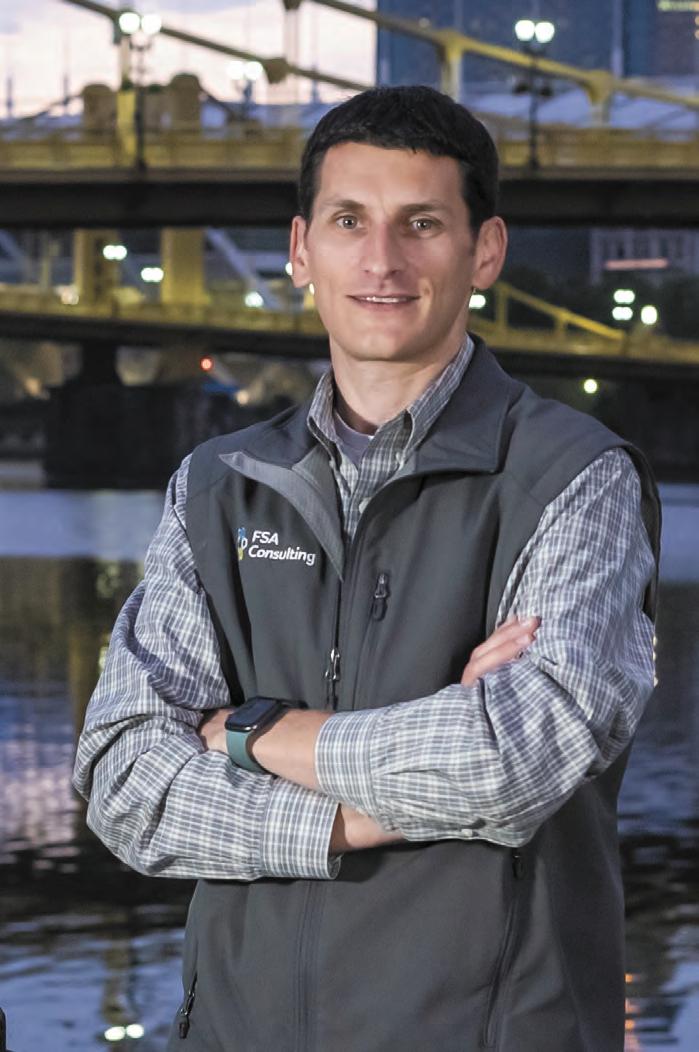
hostages in her statement, has frequently referred to Israel’s war with Hamas as a “genocide” and has called for an arms embargo against the Jewish state.
Shortly after the hostages were released Monday morning, Pennsylvania Gov. Josh Shapiro posted:
“Today is a day of great relief as after 738 days, the last 20 living Israeli hostages held by Hamas have finally come home to their families. I pray that all those families whose loved ones are deceased will soon receive them as well. The end of this terrible war now offers hope and opportunity for Israelis, Palestinians, and the entire region.
“Much work remains to ensure that Hamas is disarmed and removed from power so that Gaza can be rebuilt and a path toward a broader and deeper peace can be forged in the region. Today’s summit in Egypt is an important opportunity to advance this cause. I appreciate the President and his team for their work to reach this moment, and hope they will remain just as focused on the important work ahead.” PJC
Toby Tabachnick can be reached at ttabachnick@pittsburghjewishchronicle.org.
As cyber threats evolve, identity protection is more urgent than ever. Make sure your staff’s digital profiles and your company’s shared passwords are secure and only available to you and your team.


Submit calendar items on the Chronicle’s website, pittsburghjewishchronicle.org. Submissions also will be included in print. Events will run in the print edition beginning one month prior to the date as space allows. The deadline for submissions is Friday, noon.
SUNDAY, OCT. 19
Join the Rauh Jewish Archives and Classrooms Without Borders for a bus tour of Jewish heritage in the Monongahela Valley. Meet at Rodef Shalom before continuing to Charleroi, Brownsville and Donora. Lunch will be on your own at Brownsville. The tour will be facilitated by Eric Lidji, director of the Rauh Jewish Archives, and Kate Lukaszewicz of Classrooms Without Borders. $50. 8:30 a.m. cwbpgh.org/event/bustour.
The Pittsburgh Jewish Chronicle invites you to join the Chronicle Book Club on Zoom for its discussion of “Sons and Daughters” by Chaim Grade. 1 p.m. Email drullo@pittsburghjewishchronicle.org for registration link.
The Tree of Life presents “Antisemitism, an American Tradition.” Join New York Times columnist and 2013 Pulitzer Prize winner Bret Stephens in conversation with author and historian Pamela Nadell about her new book, which investigates the dark and long history of antisemitism in American life. Together, they will explore how understanding the past can help us stand up and fight back against hate. $0 (virtual); $125 (VIP). 4 p.m. Carnegie Mellon University, Jared L. Cohon University Center, McConomy Auditorium, 5032 Forbes Ave. Register at thetreeoflife.org.
SUNDAYS, OCT. 19–DEC. 28
Join Chabad of Squirrel Hill for its Men’s Tefillin Club. Services and tefillin are followed by a delicious breakfast and engaging discussions on current events. 8:30 a.m. 1700 Beechwood Blvd. chabadpgh.com.
Join a lay-led online Parashah study group to discuss the weekly Torah portion. No Hebrew knowledge needed. The goal is to build community while deepening understanding of the text. 8:30 p.m. For more information, visit bethshalompgh.org/online-parashah.
MONDAYS, OCT. 20-DEC. 29
Join Congregation Beth Shalom for a weekly Talmud study. 9:15 a.m. For more information, visit bethshalompgh.org.
Join Temple Sinai for an evening of mahjong every Monday (except holidays). Whether you are just starting out or have years of experience, you are sure to enjoy the camaraderie and good times as you make new friends or cherish moments with long-term pals. All are welcome. Winners will be awarded Giant Eagle gift cards. All players should have their own mahjong cards. Contact Susan Cohen at susan_k_cohen@yahoo.com if you have questions. $5. templesinaipgh.org.
TUESDAY, OCT. 21
Hannah Arendt and the Jewish Question,” presented by Michael Moshe Milch. Free. 6:30 p.m. Carnegie Library of Pittsburgh, Squirrel Hill branch. No preregistration required.
WEDNESDAY, OCT. 22
Join JFCS for Lunch & Learn: Supportive Parenting for Anxious Childhood Emotions (SPACE), designed to empower parents and guardians with skills, tools and confidence to support children with anxiety. Session is open to parents/guardians of school age children aged 7-18 still living in the home with a recognized anxiety disorder. Free. 1 p.m. Virtual through Zoom, link provided with registration. jfcspgh.org/event/lunch-learnsupportive-parenting-for-anxious-child.
WEDNESDAYS, OCT. 22–DEC. 31
Temple Sinai’s Rabbi Daniel Fellman presents a weekly Parshat/Torah portion class on site and

online. Call 412-421-9715 for more information and the Zoom link.
Bring the parashah alive and make it personally relevant and meaningful with Rabbi Mark Goodman in this weekly Parashah Discussion: Life & Text. 12:15 p.m. For more information, visit bethshalompgh.org/life-text.
Join Chabad of the South Hills for Baby Loves Shabbat music and movement for ages 0 to 3. Challah making and Shabbat songs. 3:45 p.m. 1701 Bower Hill Road. chabadsh.com.
THURSDAY, OCT. 23
Historian Deborah Dash Moore and film scholar Louis Kaplan discuss “Camera as Passport,” an exhibit featuring images taken by Jewish photographers fleeing Nazi Europe. An opportunity to tour the exhibit will precede the discussion. 5:30 p.m. Free. Squirrel Hill JCC Levinson Hall, 5738 Forbes Ave. calendar.pitt.edu/event/camera-as-passport.
SUNDAY, OCT. 26
Join the Pittsburgh Jewish community for the 10.27.2018 Commemorative Volunteering Day in service and in spirit to honor the 11 people killed in the Pittsburgh synagogue shooting. Learn more about available opportunities and register at 1027healingpartnership.org/volunteering-2025.
MONDAY, OCT. 27
Gather in honor and remembrance of the 11 people killed in the Pittsburgh synagogue shooting. Join with your neighbors, family, friends and community at the Commemoration Ceremony to mourn those lost and commit to bringing kindness into the world in their memory. All are welcome. 6:30 p.m. Jewish Community Center of Greater Pittsburgh, 5738 Forbes Ave. 1027healingpartnership.org/event/commemoration2025
WEDNESDAY, OCT. 29
The Holocaust Center of Pittsburgh presents “Voices from the Shadows — LGBTQ+ Experiences During the Nazi Era.” Eric Marcus introduces Making Gay History’s podcast series on the experiences of LGBTQ+ people during the rise of the Nazi regime, WWII and the Holocaust. Drawing on extensive research conducted for this first-of-its-kind audio documentary, Marcus shares archival clips during his presentation that brings
this painful, often hidden history to life through the voices of the people who lived it. 6 p.m. Rodef Shalom Congregation, 4905 Fifth Ave. hcofpgh.org/event/savethe-date-voices-from-the-shadows-lgbtq-experiencesduring-the-nazi-era.
THURSDAYS, NOV. 6, JAN. 15, MARCH 12, APRIL 30, JUNE 25
In the ever-evolving landscape of legal practice, understanding the interplay between faith and governance is crucial for lawyers. Join Rabbi Danny Schi for an engaging CLE series that explores many intriguing questions. Individual classes: $45 with credit/$40 without credit. 8:30 a.m. Virtual. For a complete list of class dates and subjects, visit Jewishpgh.org/event.
WEDNESDAY, NOV. 5
Kerry Wallach will deliver the inaugural Edith Balas Memorial Lecture. Her talk, “Recovering the Lost Worlds of Jewish Artist Rahel Szalit,” will focus on her process of rediscovering Rahel Szalit, one of the best known Jewish women artists in Weimar Germany, whose work was largely forgotten in the wake of the Holocaust. Free. 5:15 p.m. Cathedral of Learning, Humanities Center (602), Fifth Avenue at Bigelow Boulevard. calendar.pitt. edu/event/recovering-the-lost-worlds-of-jewish-artistrahel-szalit.
WEDNESDAYS, NOV. 5-DEC. 10
Join Chabad of the South Hills for a new JLI course, “The Kabbalah of Meaning,” exploring Jewish wisdom for finding the purpose that connects parts of life. No previous Jewish learning required. Online or in person. This course will satisfy the continuing education requirements of physicians, healthcare professionals, psychologists, social workers, LMFTs and LMHC/LPCs. 7:30 p.m. chabadsh.com.
SUNDAY, NOV. 16
Join Young Peoples Synagogue for a Jewish Pittsburgh bus tour of the North Side hosted by Eric Lidji, director of the Rauh Jewish Archives. Breakfast at 9 a.m. in the YPS social Hall at Denniston and Forbes; the trolley leaves at 10 a.m. $36. Open to YPS members, guests and the Jewish community. For more information, call Rebecca Spiegel at 412-421-3213, or email rebecca. spiegel1@verizon.net. Deadline to register is Nov. 3, 2025. PJC
The Pittsburgh Jewish Chronicle invites you to join the Chronicle Book Club for its Oct. 19 discussion of “Sons and Daughters,” by Chaim Grade.
From Amazon.com: “Originally serialized in the 1960s and 1970s in New York–based Yiddish newspapers, Chaim Grade’s ‘Sons and Daughters’ is a precious glimpse of a way of life that is no longer — the rich Yiddish culture of Poland and Lithuania that the Holocaust would eradicate. We meet the Katzenellenbogens in the tiny village of Morehdalye, in the 1930s, when gangs of Poles are beginning to boycott Jewish merchants and the modern, secular world is pressing in on the shtetl from all sides. It’s this clash, between the freethinking secular life and a life bound by religious duty — and the comforts offered by each — that stands at the center of ‘Sons and Daughters.’”
Your hosts
Toby Tabachnick, Chronicle editor
David Rullo, Chronicle senior staff writer
How it works
We will meet on Zoom on Sunday, Oct. 19, at 1 p.m.
What to do
Buy: “Sons and Daughters.” It is available at some area Barnes & Noble stores and
from online retailers, including Amazon and Barnes & Noble. It is also available through the Carnegie Library system.
Email: Contact us at drullo@pittsburghjewishchronicle.org, and write “Chronicle Book Club” in the subject line. We will send you a Zoom link for the discussion meeting. PJC
— Toby Tabachnick
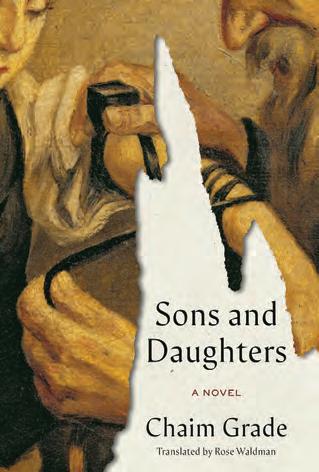

By Steven Davidson | JTA
RAMALLAH, West Bank — As a teacher at a school in the Galilee in northern Israel, peace activist Shoshana Lavan says students often told her during the war, “Don’t talk to me about peace.”
But just hours after a ceasefire agreement was reached between Israel and Hamas, she was beaming with hope. “I feel like I can turn around and tell them, ‘I told you so,’” she said with a smile.
At that moment, she sat in the glistening white marble dining hall of al-Muqata’a, the presidential palace for the Palestinian Authority.
A self-described idealist who made aliyah six years ago from England in part to do anti-occupation work, Lavan and her husband, Baruch Velleman, joined about 50 other Jewish and Arab peace activists who took a bus from across the Green Line to meet with Palestinian Authority President Mahmoud Abbas in the heart of Ramallah.
With the two groups originally planning to meet to call for the end of the war, upon the ceasefire announcement, they went further in calling for both sides to build on the initial agreement to end Israel’s military occupation and create long-lasting solutions to the IsraeliPalestinian conflict.
“I welcome today’s agreement, the cessation of hostilities, and the release of the hostages,” Abbas said at the meeting, commending the delegation for “strengthen[ing] hope for peace.”
“Hope begins today, and now we must ensure that we continue to implement peace,” he said. “Every Israeli who believes in peace is our brother.”
The activists, as part of the “It’s Time” Coalition representing 60 Israeli peace and reconciliation organizations, called the unusual
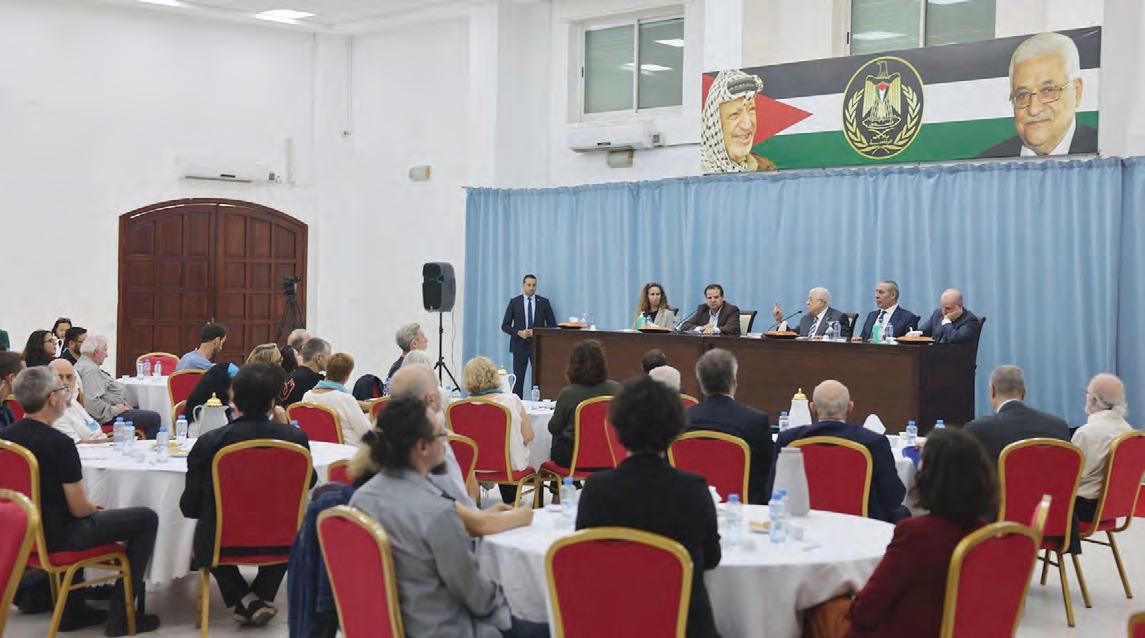
American governments. The ceasefire deal, brokered /by U.S. President Donald Trump without involvement by the P.A., came just weeks after Abbas was denied a visa by the United States to visit New York for this year’s U.N. General Assembly, where several European countries officially recognized an independent Palestinian state for the first time.
For years, the current Israeli government, led by Prime Minister Benjamin Netanyahu, has targeted Abbas’ PA government due to its track record of paying stipends to Palestinians in Israeli prisons, including those convicted of committing violent acts to Israeli citizens, as well as for textbooks used in Palestinian classrooms allegedly glorifying violence and extremist views.
The unprecedented meeting between Israeli activists and leaders of the PA served for the
talking to one another and solving our problems and hearing one another and sharing a meal, as we did here.”
For some including Velleman, a longtime peace activist over many decades, the gathering at Al-Muqata’a encapsulated years of efforts to bring together disparate Israeli activist groups under one umbrella — an effort that finally congealed as the devastating war in Gaza raged, the Israeli hostages languished in Hamas tunnels, and thousands protested outside the Israeli Knesset and at Hostage Square in Tel Aviv for months.
Now, the ceasefire deal left some of the attendees trying to put the pieces together of what it all meant.
“However much we hate Trump, maybe we needed Trump in order to do what he’s done now,” wondered Velleman aloud at the dining table. “Only somebody with a massive ego, who’s crazy and knows how to lie totally and bully. Sometimes to beat a bully, you need
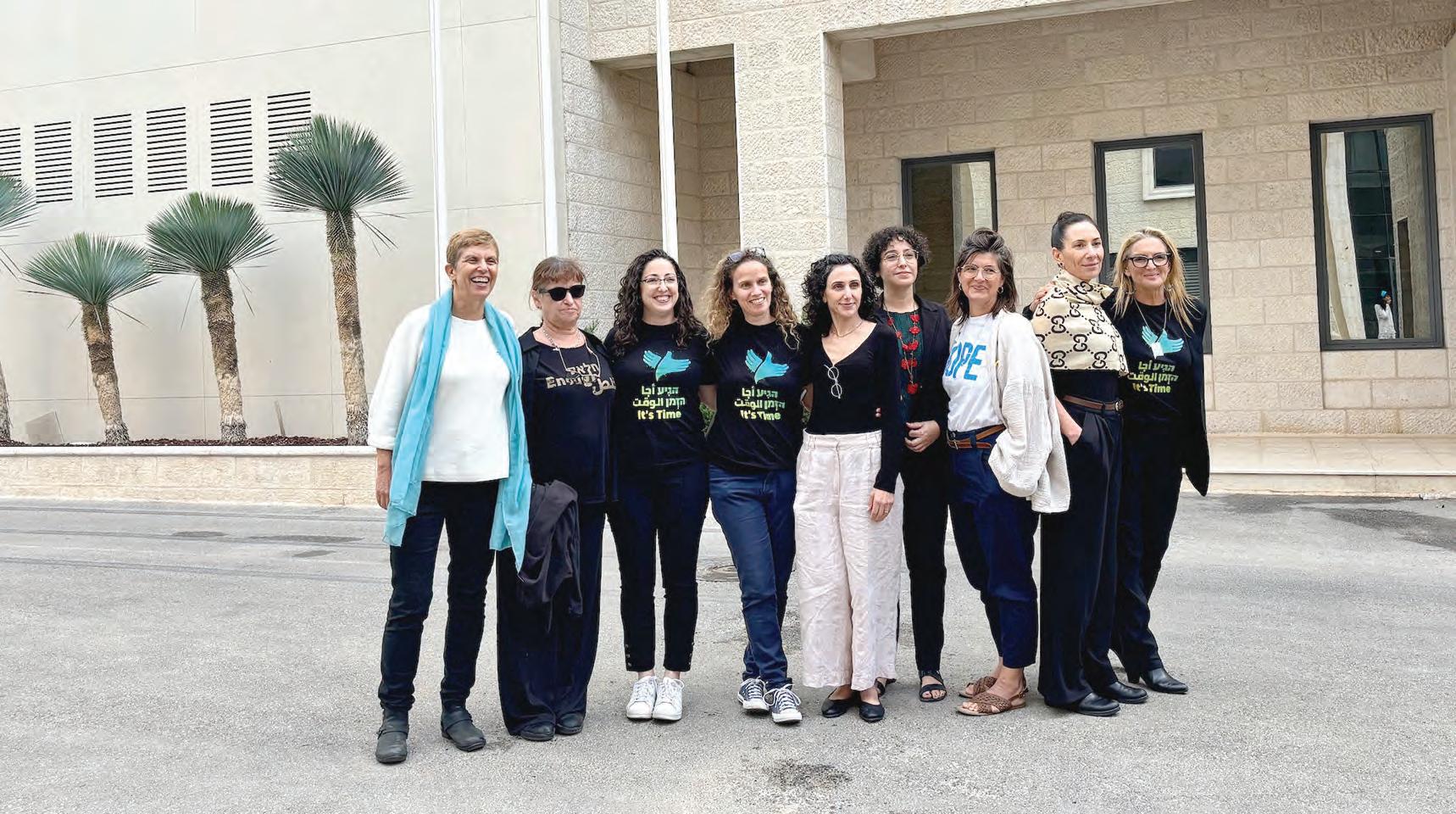
During the meeting, the peace activists and the Palestinian president, spurned and ntagonized by political forces that brokered the deal, expressed a deep appreciation for one another. Activists shook Abbas’ hand, and ne offered him a hug. Abbas conveyed his sympathies to Yonatan Zeigen, the son of the activist Vivan Silver who was killed during the Oct. 7, 2023, Hamas massacre, and after Israeli activist Lea Shkeydel spoke on the Jewish value of saving lives, Abbas cited a line from the Quran: “Whoever saves a life, it will be as if they saved all of humanity.”
One speaker shared with Abbas a petition signed by over 10,000 Israelis to recognize a Palestinian state, and the delegation presented to the Palestinian president an invitation to the group’s People’s Peace Summit,
“We want to work together in cooperation for hundreds of years to come,” Abbas told
Amid the generally ebullient atmosphere,
some speakers reflected on how the preceding two years had transformed them. Zeigen looked back at “a time I felt helpless to shape political reality around me.”
“That changed on Oct. 7 when this fantasy of ignoring occupation could no longer continue,” he said. Zeigen called for not only ending the war and releasing the hostages, but to end Israel’s military occupation of the West Bank.
With It’s Time representing a broad spectrum of anti-war groups, some attendees privately expressed pessimism of what came next, including Roy Talmon, a member of an Israeli activist group called Looking at the Occupation in the Eye that provides protective presence to Palestinian communities in Area C, the 60% of the West Bank under Israeli civil and military law, while documenting alleged Israeli settler attacks. Such attacks have surged in recent years as, their critics say, settlers have been emboldened by Israel’s right wing government.
“Of course, I welcome the signing of the agreement to stop the genocide in Gaza and the release of the hostages and prisoners,” said Talmon. “However, the lack of involvement of the Palestinian Authority is disturbing and the situation in the West Bank is also very fragile.”
Talmon fears that after the hostages are returned, fighting in Gaza may resume, or violence in the West Bank will escalate.
“As a society, we have a very long way to go, and right now there doesn’t seem to be a willingness to start it,” he said. “And that’s without saying a word about the crimes committed in Gaza, in which most Israeli society is complicit.”
In spite of the wider marginalization these two groups now face — progressive Israeli activists, demonized by the ascendent Israeli right; and the beleaguered PA, long unpopular among Palestinians in the West Bank and now cut out of negotiations by Netanyahu
By Adam Reinherz | Senior Staff Writer
RIGA, Latvia — The quiet confines of a tranquil Latvian field and lush forest scream stories worth remembering. Inside the former, a nearly 6.5 acre stretch of manicured grass and paved pathways called the “Old Jewish Cemetery,” few markers remain.
It wasn’t always this way, guide Lena Spungina, 66, told nearly a dozen seminar participants from Classrooms Without Borders, a Pittsburgh-based organization offering educators professional development. For nearly 200 years — beginning in 1725 — this was a traditional Jewish cemetery: Bodies were buried, headstones were erected. In the mid-1920s, however, once capacity was reached, another cemetery was secured.
Located 5 miles northeast, the new site offered space for the deceased and recognition of past deeds. In May 1934, according to cemetery records, a monument to 37 Jewish soldiers and officers who died fighting for the independence of Latvia in 1918-1920 was erected.
Despite the arrival of new plots, old responsibilities remained. The community, Spungina said, upheld its duties and continued caring for the former grounds and buildings: a small chapel for services and a work area for members of the chevra kadisha (Jewish burial society).
Like the number of its plots, Riga’s Jewish community kept increasing. Before World War I, the Jewish population totaled 33,000. According to Ilya Lensky, director of the Rigabased Jews in Latvia museum, the community grew to 43,000 by 1935.
Flattening, however, soon followed.
On July 4, 1941, Nazis torched Riga’s synagogues. Jews, who had sheltered inside Riga’s Great Choral Synagogue, were burnt alive, according to the Museum of the Occupation of Latvia.
Within a month, a ghetto was created. Encircling the “poorest part of the city,” Spungina said, “all known Jews” were resettled there.
A space that previously held 13,000 teemed with 30,000. Estimates suggest that, due to overcrowding, each person had only about 4 to 6 square meters of space.

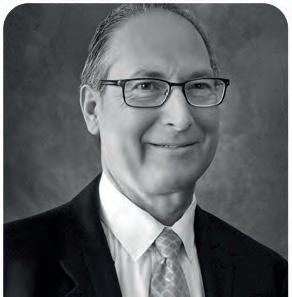






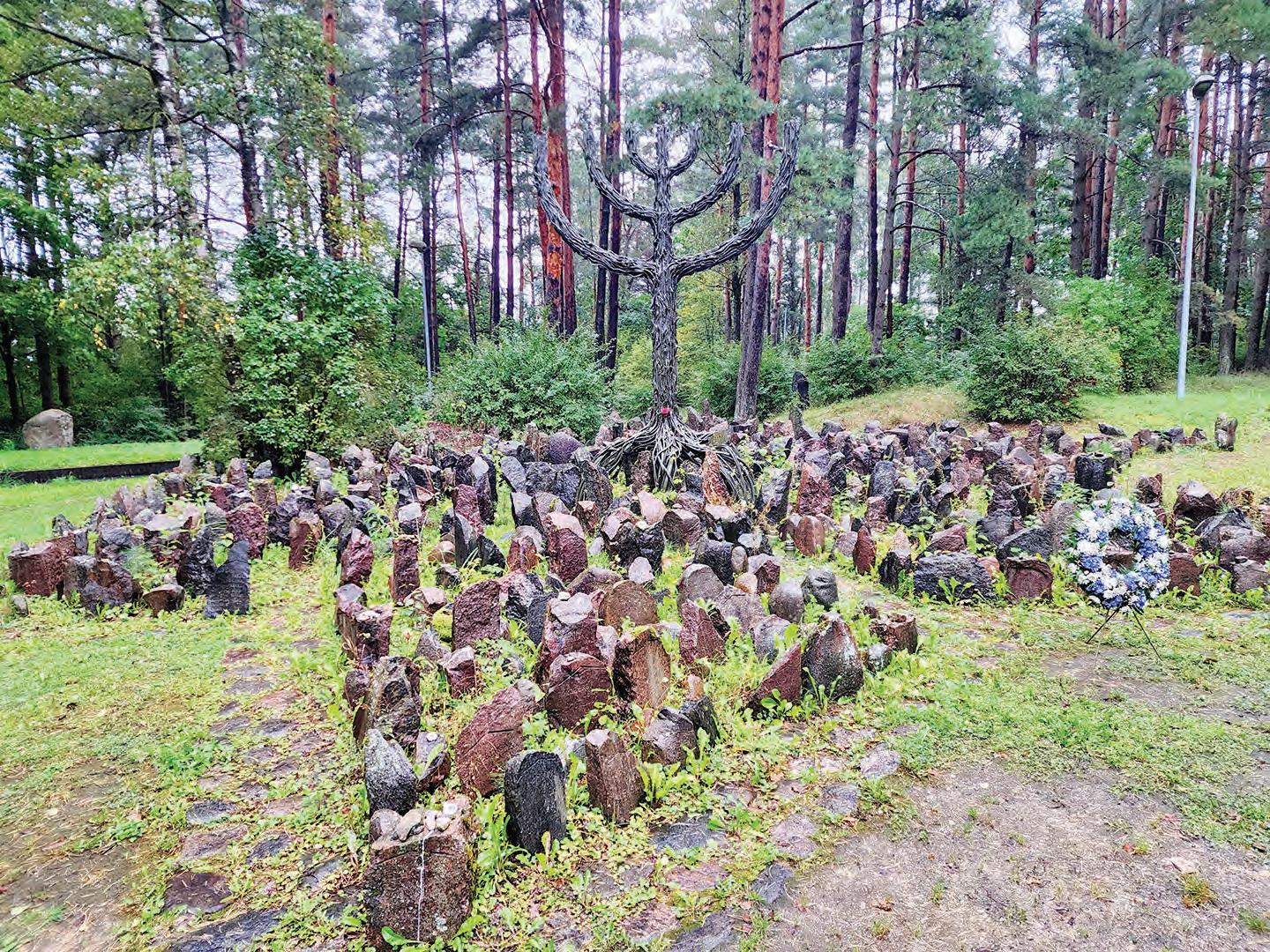
Riga’s Jews, Spungina said, was the forest. Different “rumors” existed about what waited in the woods. By the time ghetto residents arrived “they could hear the shooting.”
The terror of ordered chaos
For Riga’s Jews, final moments in the ghetto blended chaos and order. Holocaust survivor and former Riga resident Steven Springfield told the U.S. Holocaust Memorial Museum he remembered thousands of Latvian and German police entering the ghetto and chasing prisoners out.
“Whoever couldn’t walk was shot on the spot: children, women, elderly men, on the street,” he said.
Jews were directed toward the forest where Russian prisoners of war had prepared mass graves. Ghetto residents were instructed to disrobe and approach the pits. Nearly 25,000 Jews were murdered in mass shootings on Nov. 30 and Dec. 8, 1941.
Standing inside the forest last month,





founder and executive director of Classrooms Without Borders, distributed sheets with Hebrew and English memorial prayers. Texts were read. A candle was lit. Rain fell. After traversing soaked grass, seminar participants returned to the bus.
Classrooms Without Borders board member Naomi Weisberg Siegel said that visiting a site like Rumbula prompts a haunting realization that it’s “not only where people were killed, but where other people killed.”
Lest any doubt such horror could happen again, “all you have to do is look at the world today,” she continued. “I think our only hope against that is remembering the past, talking about it and trying to teach understanding.”
For days, Spungina detailed Riga’s Jewish history. Having guided since 1985, she routinely interspersed facts and memories.
Years after the Holocaust, she said, transformations occurred at the Old Jewish Cemetery and Rumbula forest. Post-war Soviet occupation enabled the cemetery’s erasure. After falling into disrepair, its headstones were cleared and the area was razed. Former markers became building materials.
Referred to as “The Park of the Communist Brigades,” the cleared site bore no mention of its prior use.
Spungina recalled ambling the area decades before its paths were asphalted. She said on several occasions she noticed odd-shaped stones along the rolling gravel walkways. Apart from being different sizes and colors than nearby pebbles, the small pieces had remnants of Hebrew writing. The fragments, Spungina continued, were shards of Jewish headstones.
After several years, the municipality asphalted the gravel path. Grounds were manicured. Memorial markers indicating the Jewish space’s former presence were installed; but they weren’t the only signs pointing to
the past, Spungina said. Somehow, despite the cemetery’s demolishment, the corner of a Jewish gravestone remained rooted in the ground. To observers, the marker, which contained letters spelling the start of a Hebrew word — likely “isha” (woman) — appeared to
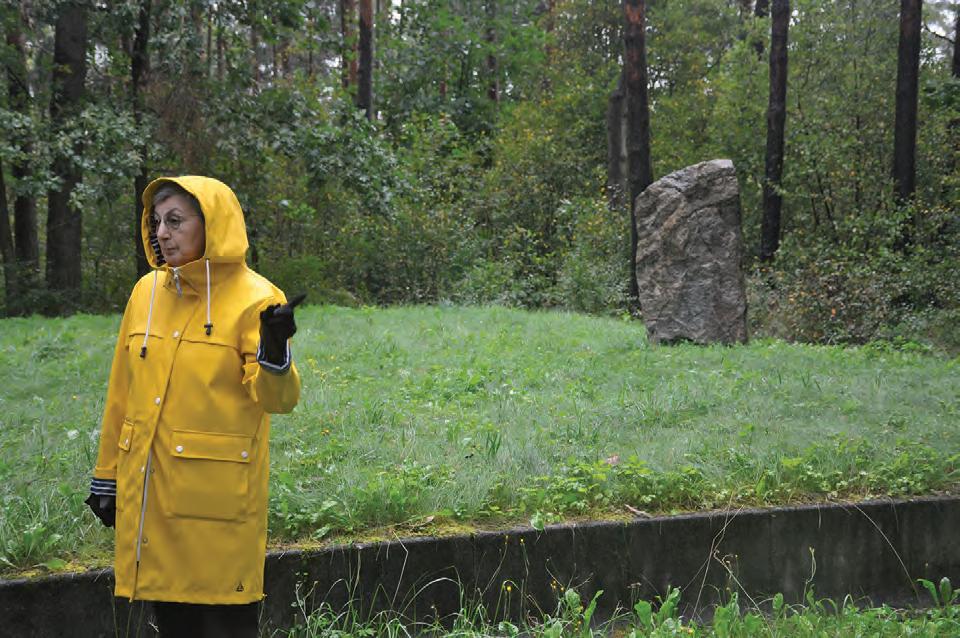
History tells its story
Lensky, speaking from within the museum, told seminar participants that the museum is tasked with educating thousands.
People must understand that Latvia’s Jewish past is “not only about tragedy and suffering,” he said. “It’s about more than that.”
Lensky isn’t alone. The quest to clarify and correct the local Jewish story began decades ago, Spungina explained.
After the Soviet Union fell in 1991, the Park of the Communist Brigades in Riga was renamed the Old Jewish Cemetery. A Star of
The FBI is cutting ties with the Anti-Defamation League, Kash Patel, director of the federal U.S. law enforcement agency, stated in a pair of social media posts, JNS reported.
Patel blamed the ADL partnership on his predecessor, James Comey, whom the U.S. Justice Department indicted last month for allegedly making false statements and obstruction of justice. Those allegations relate to Senate testimony he gave about the 2016 investigation into potential links between the Trump presidential campaign and Russia.
“James Comey wrote ‘love letters’ to the ADL and embedded FBI agents with them, a group that ran disgraceful ops spying on Americans,” Patel stated. “That era is over. This FBI won’t partner with political fronts masquerading as watchdogs.”
The ADL had also come under fire in recent weeks from conservative lawmakers and social commentators over its “glossary of hate,” which included entries for Charlie Kirk’s Turning Point USA organization and for a radical religious movement called Christian Identity, which many commentators took as a slight against Christians in general.
“The ADL hates Christians. Therefore, it is a hate group,” Elon Musk stated on Sept. 28.
The Jewish group stated it decided to “retire” the glossary, and that its entries had been “misrepresented and misused.”
The ADL responded to Patel’s announcement that the bureau was cutting ties with the nonprofit.
“ADL has deep respect for the Federal Bureau of Investigation and law-enforcement officers at all levels across the country who work tirelessly every single day to protect all Americans regardless of their ancestry, religion, ethnicity, faith, political affiliation or any other point of difference,” the group stated.
“In light of an unprecedented surge of antisemitism, we remain more committed than ever to our core purpose to protect the Jewish people,” it said.
ISIS-inspired plot to attack Jews in Manchester goes to trial
Two men went on trial last week in Greater Manchester over an alleged Islamic Stateinspired plot to attack the Jewish community in the metropolitan county in northwestern England, JNS reported.
Local law enforcement stressed there was no connection with the Oct. 2 terrorist attack on a synagogue in Crumpsall during Yom Kippur that killed two and wounded three.
British prosecutors said at the start of the 12-week trial that the attack aimed at “killing hundreds of innocent people,” according to Reuters.
The suspects — Walid Saadaoui, 38, and Amar Hussein, 52 — were arrested and charged with preparing terrorist acts in May 2024, following an extended investigation guided by intelligence sources.
Walid Saadaoui’s brother Bilel Saadaoui, 36, is charged with failing to disclose information about acts of terrorism. All three have pleaded not guilty.
The news agency quoted prosecutors as saying that Walid Saadaoui and Hussein “embraced the views of the so-called Islamic
Oct. 20, 1952 — First female Knesset speaker is born
State … (and) were prepared to risk their own lives” to become martyrs.
Greta uses Israeli hostage pic in Palestinian prisoner post Swedish activist Greta Thunberg drew criticism for posting a picture of Israeli hostage Evyatar David in a social media post about the “suffering of Palestinian prisoners,” JNS reported.
“Ignorance blinded by hate is trending: Greta Thunberg posted about ‘Palestinian prisoners’ using the image of Israeli hostage Evyatar David — starved, abused, and forced by Palestinian Hamas to dig his own grave,” the Foreign Ministry in Jerusalem wrote on X last week.
David is a 24-year-old Israeli who was abducted by Hamas terrorists during the Supernova music festival massacre on Oct. 7, 2023, and was held hostage in Gaza. Recent videos released by Hamas show him severely emaciated, forced to dig what he claims will be his own grave, and suffering from abuse in a cramped underground tunnel.
Thunberg is a 22-year-old environmental crusader who has recently become a vocal advocate for the Palestinians and highly critical of the Jewish state’s policies in Gaza. She was among more than 170 aid flotilla activists deported by Israel last week after they attempted to breach its naval blockade of Gaza to deliver what Israeli authorities described as a minuscule amount of aid supplies.
Harvard suspends prof arrested for firing pellet gun near synagogue on Yom Kippur
Harvard University suspended Carlos Portugal Gouvea after the visiting law
professor was arrested for allegedly firing a p ellet gun near Temple Beth Zion, in Brookline, Massachusetts, on Yom Kippur, JNS reported.
A Harvard Law School spokesman told The Harvard Crimson, a student paper, that the visiting professor “has been placed on administrative leave, as the school seeks to learn more about this matter.”
The professor was arrested on Oct. 1 on charges of disorderly conduct, vandalism, disturbing the peace and illegal discharge of a BB gun, according to a police report.
“Mr. Gouvea admitted to using the pellet rifle to hunt rats in the area. He was advised that it was unsafe to do so and to be aware of the alarm he had caused,” per the report.
A private security guard told police that after hearing “at least two loud shots,” he saw Gouvea “behind a large tree holding the pellet rifle.” He approached the suspect, who “set the rifle down against the tree.” When the guard tried to detain the suspect, a “brief physical struggle” occurred, and Gouvea “lunged towards the rifle,” per the police report.
After police arrived, officers saw a broken window of a nearby car and “what is believed to be the metal pellet round that was fired by Mr. Gouvea inside the passenger side front window.”
The temple posted on social media that “from what we were initially told by police, the individual was unaware that he lived next to, and was shooting his BB gun next to, a synagogue or that it was a religious holiday.”
“We were told that he was shooting rats,” the temple stated. PJC
— Compiled by Toby Tabachnick


Oct. 17, 1973 — Embargo weaponizes oil against Israel’s allies
After a U.S. airlift resupplies Israel during the Yom Kippur War, oil ministers from Arab states cut exports by 5% and recommend an embargo of Israel’s allies. Libya begins such an embargo Oct. 19.

Oct. 18, 1991 — Israel, Soviets resume relations
The Soviet Union and Israel resume full diplomatic relations for the first time since June 1967. They established consular ties in 1987. Israel’s agreement to participate in the Madrid peace conference is crucial.
Oct. 19, 1959 — Politician Nir Barkat is born
Nir Barkat is born in Jerusalem, which he serves as mayor from 2008 to 2018. He founds BRM, which specializes in antivirus software, in 1988. After two terms as mayor, Barkat joins Likud and is elected to the Knesset.
Dalia Itzik, the first female Knesset speaker, is born in Jerusalem. She gets her start in politics as the chairwoman of the Jerusalem Teachers Union for five years and is first elected to the Knesset in 1992
Oct. 21, 1967 — Egypt sinks warship Eilat
Egyptian Komar-class missile boats within the Port Said harbor fire Soviet-made missiles at the Israeli destroyer INS Eilat on patrol in international waters. Nearly cut in half, the ship sinks within minutes.
Oct. 22, 1979 — High court rules against settlement
For the first time, the Israeli Supreme Court rules against Jewish settlers. The court orders the Gush Emunim settlement of Elon Moreh dismantled for lack of evidence that it was established for security reasons.
Oct. 23, 1868 — Philanthropist Mond is born
Alfred Mond, an ardent British Zionist, is born in England. After the Balfour Declaration, he uses his wealth to support Jewish settlement in Palestine, including Tel Mond, and helps f ound the Jewish Agency. PJC



Hostages:
Continued from page 1
The hostages were received by the International Committee of the Red Cross, which transferred them to the IDF inside Gaza. There, military medical teams carried out initial examinations.
If their condition permitted it, the freed hostages traveled in an IDF convoy to the Re’im military base, where their families were waiting. The base had been prepared with 20 private rooms designated for reunions and thorough medical assessments.
IDF Chief of Staff Lt. Gen. Eyal Zamir led “Operation Returning Home” from the Military Intelligence Directorate’s Headquarters of the Hostages and Missing Persons on Monday morning.
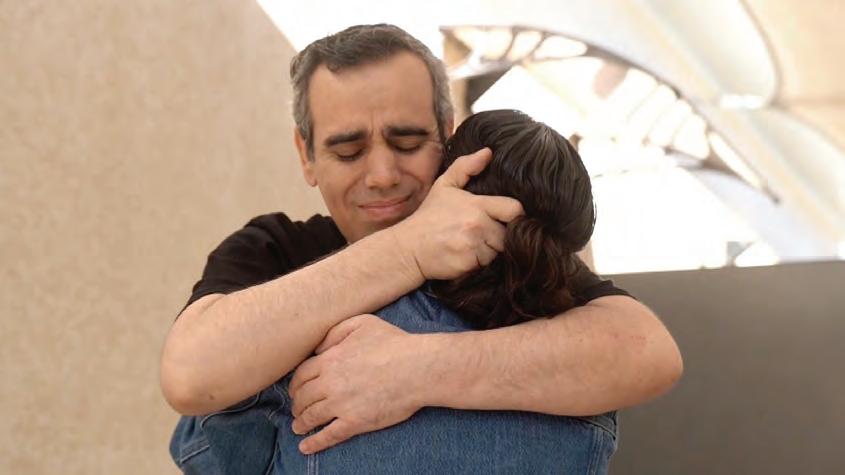
“This is a very significant day; we are succeeding in implementing a main part of the war’s defined objectives,” Zamir told commanders and soldiers as the operation got underway, according to an IDF readout.
“After two years of one of the hardest wars we have known, this event is concluded, but not yet complete, and we are closely monitoring the situation in the field,” he added. “The IDF will not cease for a moment in carrying out this sacred mission, until the return of the last hostage.”
Israeli Prime Minister Benjamin Netanyahu and his wife, Sara, included a personal note to the returning hostages in a reception kit prepared for them, the Prime Minister’s Office said on Monday morning.
Commemoration:
Continued from page 1
very legitimacy.” And while Pittsburgh’s Jewish community is not monolithic, “what matters is that we hold each other close, even when we disagree — that we stand up for one another and for Israel together.”
Throughout the program, speeches, songs and readings repeated a trope of togeth erness. Cantor Laura Berman of Parkway Jewish Center sang “Acheinu,” a prayer beseeching mercy on those members of the “house of Israel who are given over to trouble or captivity.” Dean Aseef, a shaliach at the JCC, recited the prayer for the state of Israel, a text asking for the establishment of “peace in the land and everlasting joy for its inhabitants.” Rabbi Yitzi Genack, of Shaare Torah, chanted Psalm 121, a hymn whose opening verses note, “My help comes from the Lord, the maker of heaven and earth.”
The kit contains clothing and personal items, as well as a laptop, cellphone and tablet to assist the freed hostages in reintegrating, according to the PMO.
The handwritten note from the Netanyahus reads: “On behalf of the entire Israeli people, welcome back! We waited for you and embrace you.”
Following the reunion at Re’im, the hostages were to be flown to hospitals across the country, which had cleared dedicated departments.
Meanwhile, the Palestinian prisoners set for release boarded buses outside Israeli jails. They departed for the border crossings after
all surviving hostages were confirmed to be safely in Israeli hands.
Jerusalem agreed to release 1,950 Palestinian security prisoners, including 250 who are serving life sentences for deadly attacks, as well as 1,700 Palestinians arrested since Oct. 7, 2023.
After the freed hostages arrived in Israel, the Red Cross convoy was expected to return to Gaza to recover the bodies of the 28 deceased as outlined in the agreement with Hamas.
However, the Hostages and Missing Persons Families Forum, which represents hostage families, said it was “shocked and

The crowd rose to their feet as Rabbi Seth Adelson of Congregation Beth Shalom led “The Star-Spangled Banner,” followed by Cantor David Reinwald of Temple Sinai and Rodef Shalom leading “Hatikvah.” Placed midway through the program was a conversation between the Federation’s Gefsky Community Scholar Rabbi Danny Schiff and Oct. 7 survivor Andrei Kozlov.
Kozlov recounted his experiences immigrating to Israel from Russia, serving as a security guard at the Nova Music Festival, his Oct. 7 abduction into Gaza, eight months of captivity and his June 8, 2024, rescue by the Israel Defense Forces.
Kozlov largely refrained from answering Schiff’s questions about the dramatic rescue, but said the experience was beyond
comprehension: “You have to understand that all this time you’re praying, and you imagine how you will be released, and then it happens absolutely unexpectedly.”
The events of that day, Kozlov noted, included instruction and a “fist bump” from a Russian-speaking IDF soldier who was sent to communicate with the captive. The rescue and return to Israel, he said, brought a mix of confusion and euphoria: “I was crying and laughing at the same moment.”
Shadyside resident Abby Morrison, one of the 300 attendees seated in the JCC’s Levinson Hall — an overflow room in the nearby gym provided space for additional
dismayed” after learning that only four bodies would be returned on Monday.
The organization described the limited return as “a blatant breach of the agreement by Hamas” and pressed the Israeli government and the mediators to “take immediate action to rectify this grave injustice.”
The bodies will be draped in Israeli flags and transported to Re’im, where they will be greeted by an honor guard and a prayer led by a military rabbi.
Israel’s Ministry of Religious Services is prepared to then receive the remains at the National Institute of Forensic Medicine at Abu Kabir in Tel Aviv for final examination.
The ministry’s director-general, Yehudah Avidan, said Sunday that the institute holds intelligence files on each of the fallen to help expedite their identification.
Avidan told Reshet Bet that most of the 28 murdered hostages have already been declared dead by a special committee led by the Chief Rabbinate, allowing widows to remarry in accordance with Jewish law.
“There’s no chance of error,” he stressed, explaining that the committee acted solely on solid evidence provided by Israeli intelligence agencies.
Noting that some families already observed the seven-day mourning period known as shiva, Avidan said that the Religious Services Ministry would assist the families in holding a “new funeral.”
Jerusalem “is committed to bringing back all the hostages held by the enemy and will act to achieve this mission with determination and tireless effort,” said the PMO. PJC
events calling for a safe return of the hostages during the past two years.
Coming to the JCC on Oct. 12 marked a personal “hope,” she said, “that this will be the last time we ever have to go to something for the hostages.”
Speaking with the Chronicle following the event, Pennsylvania Sen. John Fetterman said he was “elated” to see the end of the war in sight. “We can look forward to closing that chapter.”
For two years, Fetterman repeatedly called attention to the captives’ plight. He met with hostages’ family members, traveled to Israel, covered his Washington D.C. office walls with photographs of those abducted on Oct. 7 and used media appearances to implore listeners to consider the hellish realities of confinement.
When asked why the issue mattered so much, Fetterman said, “Well, they’re still there.”
attendees — called Kozlov’s comments “moving” and said she remained on “pins and needles” waiting for news regarding the safe return of those hostages still in Gaza.
The balance between hearing Kozlov’s remarks and knowing other captives could soon come back to Israel was emotionally weighty, Mt. Lebanon resident Lisa Mekovsky told the Chronicle. The evening’s program reflected both the “high and the low, the oy and the joy.”
Hours before Hamas released the last 20 living hostages as part of a ceasefire deal with Israel, Point Breeze resident Lynda Wrenn said she has participated in multiple
“There are still humans kept underground and tortured and starved in there, and the media and the world seem to erase them and forget why Israel is forced to continue this Gaza war,” he said.
Fetterman paused from speaking with the Chronicle to meet with Kozlov. Afterward, alom Fetterman told the Chronicle, “I’ve lost count of how many hostages and their family members that I’ve met.”
The stories of their survival are awe-inducing and will “never get old for me, but thankfully, by 2 a.m. today, this is going to begin to stop,” he said. “Finally, these last folks can come back home.” PJC
Adam Reinherz can be reached at areinherz@pittsburghjewishchronicle.org.
Continued from page 4
Several hours later, Witkoff and Kushner traveled to Cairo, where they met with Egyptian President Abdel-Fattah el-Sissi. “We told him that we were grateful for his leadership, but … we were going to need him on the implementation phase,” the senior U.S. official said.
By Thursday evening, the pair had landed in Israel, where they immediately set out for back-to-back meetings with President Isaac Herzog and Netanyahu, shortly before the latter was slated to hold a cabinet meeting to ratify the agreement signed in Sharm el-Sheikh.
Witkoff offered to present his case in favor of the deal to the cabinet and Netanyahu jumped on the opportunity.
The two American officials caught the ministers by surprise, as Netanyahu hadn’t let them know in advance that the pair would be joining, and they were welcomed with extended applause.
The senior U.S. official clarified that there were “plenty of differences of opinion” voiced by “hardliners,” but “there were also people who wanted to see the hostages come home above all else, and we explored different pathways to reach good compromises.”
Abbas:
Continued from page 7 Deal:
and Trump — the participants celebrated the gathering as a special occasion to lay the groundwork for outreach beyond the Green Line, despite the several tables empty in the back of the room.
Lavan says she hopes the ceasefire agreement will build toward a lasting peace, connecting
Latvia:
Continued from page 8
David monument was placed near the cemetery’s entrance. Twenty years later, another marker — shaped like an unrolled Torah scroll with etched details recounting the area’s Jewish history — was installed.
Walking the grounds and reading these monuments offers insight into what happened at the cemetery, Gur said. But visiting Rumbula is the only way to “understand the murders.”
After the war, former Riga resident Samuel Zeitlin traveled to the Rumbula forest. He and his wife, Spungina said, heard Riga’s 25,000 Jewish ghetto residents were killed in the woods. Zeitlin and a small group entered the area, but all they found was “a forest.” Zeitlin and company returned again. This time, Spungina continued, they brought an agronomist, who noticed flowers growing in “organic soil.”
The team tore open the ground. Beneath the soil were burnt bones and other remains. The Nazis, in an effort to destroy evidence, had instructed prisoners to ignite proof of murdered Jews. After the incineration was complete, the prisoners were also killed, Spungina said. For weeks, in an effort to preserve the past, Zeitlin, and his small group,
After more than an hourlong appearance, Witkoff and Kushner left. The cabinet went on to ratify the hostage-ceasefire deal shortly after midnight Thursday-Friday.
“People are relieved and joyful to see this end. Most people in Israel either have children or neighbors or friends who are fighting in the war,” said the senior Trump aide, who briefed reporters alongside the senior U.S. official, both on condition of anonymity.
“With that being said, there’s real fear there about what will happen next. Will Gaza again pose a threat? If the mechanism that we create and everyone behaves and works properly, hopefully, we can create a new paradigm that can lead to a more peaceful and prosperous place in the future,” the senior Trump aide added.
From phase one to phase two
Witkoff and Kushner would remain in Israel through the hostage releases to make sure that the deal was properly implemented.
“There are still a lot of ways that this can go wrong, so we’re staying on top of the details to make sure everyone fulfills their obligations and that any misunderstandings are quickly adjudicated,” the senior Trump aide said.
“We want to make sure that we get to the withdrawal, the ceasefire, and then we get to a place for the hostages to return home and for the exchange to be done. Then we’ll
go into the next phase, which is figuring out what comes next in Gaza,” the Trump aide continued. “We have a lot of concepts and ideas that we’ve been trying to get developed for a long time, that now we’ll have to get them operationalized.”
One of the first steps in that process will be deploying around 200 U.S. Central Command soldiers to establish a task force outside Gaza, aimed at supporting the International Stabilization Force that the Trump plan envisions will gradually replace the IDF throughout the Strip.
Witkoff had CENTCOM Chief Brad Cooper join the talks, and the admiral managed to quickly win over the other parties when he informed them he could have the task force operational within two and a half weeks, the senior U.S. official said.
“We’re already talking to multiple governments about standing up that ISF force,” the senior U.S. official said, without naming the volunteer countries. Indonesia is the only country to date that has publicly offered to send troops to Gaza.
“Then there will be discussions, and we’ll see if there is a true pathway for decommissioning the military installations in Gaza and the heavy arms,” the Trump aide added.
The Trump aide was unmoved by Hamas’ statements rejecting the idea of disarmament. “I wouldn’t pay too much attention to public statements from anyone in the
“We want to work together in cooperation for hundreds of years to come.”
–MAHMOUD ABBAS
the pivotal moment with past struggles. Lavan, “and the next day we were celebrating in the streets because there was peace,
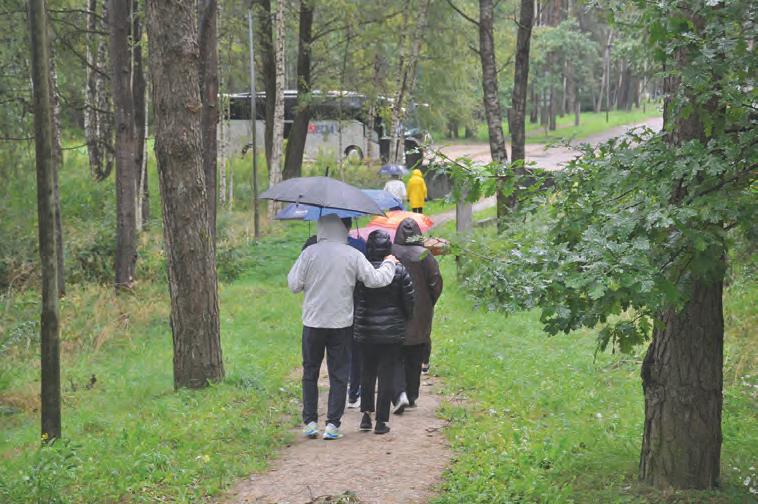
returned to the Rumbula site. Opening the earth, time and again, they discovered remains belonging to thousands.
A protracted memorialization process began. In 1963, despite pushback from Soviet authorities, Zeitlin and the team arranged for a Yiddish plaque to be placed on a nearby pine. Additionally, on the side of the Rumbula railway, according to the University of Latvia, a poster by artist Joseph Kuzkovsky was placed; it depicted a man, “rising from the grave, with his fist clenched, symbolizing a protest against these crimes.” By 1964, however, both the plaque and poster were removed. Zeitlin and others refused to accept a negation of remembrance, Spungina said.
Middle East. It’s more about what people are saying privately and about what they’re actually going to do.”
While the U.S. hasn’t secured financial commitments from its Arab and Muslim allies, it has lodged security guarantees from those countries “where they said they were going to stand behind the decommissioning of the weapons” in Gaza.
Expanding the Abraham Accords
If the second phase can be advanced, the Trump aide expressed optimism that the Abraham Accords brokered by Trump in his first term can then be expanded.
“Oct. 7, and the war in Gaza created a black cloud over the region and changed a lot of the sentiment regarding Israel,” the aide acknowledged.
Nonetheless, this deal can reverse those dynamics and revive efforts to broker normalization deals between Israel and countries like Saudi Arabia, Indonesia, Qatar, Mauritania, Algeria, Syria and Lebanon, the senior Trump aide maintained.
“Our general message now is that being divided and isolated and balkanized hasn’t worked in the Middle East. It has just led to a lot of victimization, conflict, bad blood, misunderstanding,” he said. “But when there’s communication and when countries have relations, and the people get to know each other and do business together, that’s a better recipe for peace and a foundation for stability.” PJC
In fact, it took 24 years after the Birmingham pub bombings for the Good Friday agreement to be signed in 1998.
The activists are hoping for a shorter timeline in their neighborhood. Less than 24 hours after the ceasefire was announced, they were already discussing what comes next in their efforts to bring about a lasting peace in the Middle East.
“Now, our work really starts,” declared Velleman. PJC
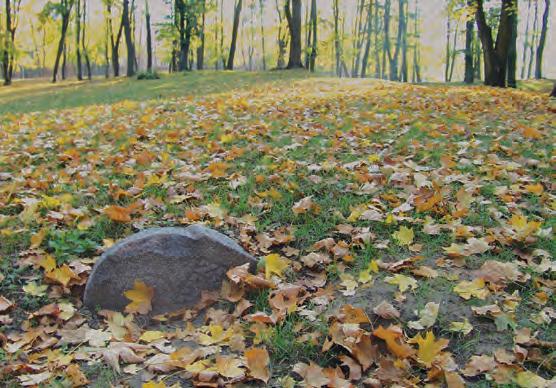
Eventually, permission was granted to install a stone, with the words “To the Victims of Fascism” written in Latvian, Russian and Yiddish. A later plaque indicates the monument was “erected by activists of Riga’s Jewish community” and that it was the “only Jewish memorial to victims of Nazi terror in the territory of the USSR.” Finally, after the Soviet Union’s demise, a large Jewish memorial was erected at Rumbula.
With rain still falling, seminar participants approached the memorial. At its center was a seven-branched menorah. The structure’s base resembled roots pushing forth from the ground. Surrounding the candelabra were six sections of stones collectively forming a Star of
David. Written on several stones were names of former Riga Jewish residents who were murdered in the forest.
One stone deserves special attention, Spungina said. Unlike those used to record the names of Jews murdered in 1941, this stone bears the name of a survivor. Pointing to a rock reading Samuel Zeitlin, the guide instructed visitors to pause and consider a Riga resident who unearthed his landsmen and laid them to rest so the ground could tell their story. PJC
Adam Reinherz can be reached at areinherz@pittsburghjewishchronicle.org.
Guest Columnist
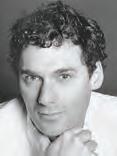
On Yom Kippur, millions of Jews around the world prayed for the release of the hostages. A week later, those prayers are on the verge of being answered.
President Donald Trump’s announcement last week that Hamas and Israel accepted the first phase of his peace deal — including the release of all the living hostages at once, in exchange for Palestinian prisoners — was as shocking as it was wonderful.
Just over two years since Oct. 7, 2023, when Hamas invaded Israel, killing almost 1,200 people and abducting 251, there has been scant good news. As the death toll has mounted on both sides, we’ve had little reason to expect anything except for more bloodshed, more vengeance and more destruction.
“History teaches us that men and nations behave wisely once they have exhausted all other alternatives,” the late Israeli diplomat Abba Eban once said — and Trump saw that Israel and Hamas were both exhausted, with no alternatives.
Israel faced mounting domestic unrest, a steep decline in international support as its allies lined up to back a Palestinian state, cultural and diplomatic isolation, and a war-weary military.
Hamas lost every battle but the one it started on Oct. 7, and found itself cornered in Gaza City without the weapons lifeline of Iran and the cash infusions from Qatar. Hamas had also lost popular support. After Oct. 7, 71% of Palestinians said they supported the attack. In a May 2025 poll, that number was 51%. Support for Hamas
among all Palestinians has dropped to 32% from 43% in December 2023.
The outline of the current deal is similar to one President Joe Biden offered a year ago. What’s different: Trump understood that both parties were at the end of the road, and used that knowledge wisely.
He increased American leverage over
“History
really come through, after so many failed efforts to secure a lasting ceasefire, was that Trump successfully forced Netanyahu to make a personal apology to Qatar last week — something almost unprecedented in Middle East diplomacy. He then extended the promise of a NATO-like American defense shield to Qatar, also
teaches us that men and nations behave wisely once they have exhausted all other alternatives,” the late Israeli diplomat Abba Eban once said — and Trump saw that Israel and Hamas were both exhausted, with no alternatives.
Hamas by bringing Qatar closer than ever into the United States’ embrace. Skeptics said that part of that closeness came from the economic ties between Qatar and the Trump family and its associates. If that’s what brings the hostages home, I’m frankly not sure I care.
At the same time, Trump finally stood up to Israeli Prime Minister Benjamin Netanyahu. According to news reports, he lost his temper with Netanyahu following Israel’s September assassination attempt against Hamas leaders in Doha, Qatar. That shocking expansion of the war threatened the Abraham Accords, the singular diplomatic achievement of Trump’s first term, as well as direct U.S. interests: Qatar hosts the largest American air base in the Middle East.
The first clue that Trump’s deal might
unprecedented.
All that maneuvering has led to an agreement that, if it holds, will be a stunning victory against extremism.
Hamas and other Palestinian militant groups have reaped the fruits of violent resistance. Could they be more rotten and bitter?
Far-right Israeli leaders and their supporters who fantasized about reoccupying Gaza — which would’ve been almost inconceivable without consigning the remaining hostages to death — will not get their way. “I said, ‘Israel cannot fight the world Bibi, they can’t fight the world,’” Trump said.
And the longer-term implications of Trump’s plan provide a pathway to peaceful coexistence between Israelis and Palestinians, which would almost certainly deprive those same Israelis and their
supporters of dominion over the West Bank and the almost 2 million Palestinians who live there.
The deal is a blow to extremists outside the region as well — those online social media warriors who have been trashing the deal, eager to fight the Zionist entity into nonexistence. The prospect of peace and coexistence must be a huge disappointment for them.
“Let it be known that Western leftists who oppose the ceasefire plan in Gaza are now more radical and rigged than Hamas itself,” wrote Palestinian activist Khalil Sayegh last week. “Hamas sounds reasonable compared to the keyboard warriors in the West.”
For the rest of us, the deal is a giant leap in the right direction.
In January, when Trump oversaw a deal to release 33 hostages with the same promise of a long-term Israeli-Palestinian accord, I wrote that if it came to pass, I would be the first in line to hang the Nobel medal around his neck. I still think he is a clear and present danger to democracy in the U.S. and to the well-being of the most vulnerable Americans, as the current government shutdown makes clear.
But credit where credit is due. This is an artful deal, one that returns hope to a region where it had all but disappeared.
The last deal fell apart when Netanyahu refused to enter the second phase of negotiations. This one has more of the necessary threats and benefits behind it to keep all the parties in line. Here’s praying it holds — for the hostages, for Israelis and Palestinians, and for the world. PJC
Rob Eshman is a senior columnist for the Forward, where this first appeared.
My one sign against the hate of the ‘Flood NYC for Gaza’ protest was not enough
Guest Columnist

Iwalk into the growing “Flood NYC for Gaza” rally in midtown alone on the second anniversary of Hamas’ Oct. 7 massacre, my counterprotest sign tucked away in a FedEx envelope. Because of the Jewish holiday of Sukkot, I don’t have my phone. The friend I had planned to meet is nowhere to be seen. I’m nervous, but more angry than afraid.
The rally’s name evokes the “Al Aqsa Flood,” the worst loss of Jewish life since the Holocaust. Hundreds of masked people fill the plaza on this Oct. 7 anniversary, screaming not for the emerging peace deal, but for continued violence against Israel. They blame the Jews
for the war’s devastation.
Many of the protesters look young, stylish — even trendy, much like the Democratic candidate vying to be New York City’s next mayor. One blonde woman with piercing blue eyes wears what looks to be a Bergdorf scarf as a keffiyeh; the tall young man
support from afar. His statement marking Oct. 7 repeats every lie thrown at Israel — acc using it of genocide when Hamas sought this inferno; blaming the war on occupation, though Israel left Gaza in 2005; and calling Israel an apartheid state, despite its thriving Arab minority —
What a blessing it is to live in a world where we can still stand up for ourselves.
beside her, calling for an end to Israel, sports designer sneakers. Do the KKK’s supporters also match robes to perfect pairs of shoes?
Z ohran Mamdani refuses to confront this mob. No longer attending these rallies in person, he now lends them coded
while Gaza remains Judenrein. Genocide, occupation, apartheid — these words are meant to inflame. They succeed. One sign reads “Israel has the right to go to Hell.” Another declares “Kill the Jews,” proudly displayed to a CBS cameraman more interested in his phone.
I find a small open space near the front, take out my sign, and lift it high: “We demand that Hamas free the hostages, disarm and disband, and end this terrible war — take the peace deal!” Any fear and anger dissolve; they have no place now. My work is to stand, silently and firmly, for what I believe.
It takes a minute, maybe two, for those around me to realize I’m broadcasting a different message. A college student screams in my ear that I’m a baby killer. I don’t react.
A young man blocks my sign with his own. “I’m a subway surfer,” he grins. “I’ll play this game all day.” He’s maybe 19. Israeli kids his age are in Gaza’s boobyt rapped tunnels, confronting an enemy that glories in either their deaths or those of Palestinian civilians. “Subway surfing is dangerous,” I reply. “Please be careful.”
Please see Wiesel, page 13
Last week, the Chronicle asked its readers in an online poll the following question: “In the past year, have you or has someone you know been directly affected by an antisemitic incident?” Of the 180 people who responded, 59% said no and 41% said yes. Comments were submitted by 38 people. A few follow.
I was at the Pitt event where activists purposely intimidated Jews by disrupting a presentation about the history of Jews in Israel. These activists had been sitting quietly at the program but then put on keffiyehs and ran around the room tossing anti-Israel flyers on the tables. It was very upsetting.
In an interesting blend of antisemitism, homophobia and ageism, I have been called publicly, to my face, a “ tired, old, faggot, Jew.”
It happened at work. I was singled out for being Jewish. Since the managers are not, they didn’t know how to handle it.
being targeted by actions of Jew hatred.
“Whites only” segregation policies. She exposed injustice — but later told me that she hadn’t done enough.
I have been referred to as “you people.”
We see signs of Jew hate all around us. It has become acceptable.
I no longer wear Jewish-themed shirts or pendants in public.
For the past two years, my eyes and ears have been assaulted with the chant, “From the river to the sea” (meaning annihilate the Jews). In my city, in the crème de la crème universities, in the United States of America and around the world. — yes, my well-being is affected just like a punch in my face. When you know this type of rhetoric from history, we’ve seen what can come next.
Several people in the East End of Pittsburgh, including a minister, made antisemitic comments to me during written communications. I followed up with her, but she chose not to reply.
the ballot box.
Soon, a group of women raise a massive banner in front of me, blocking me from view. I know this makes things riskier, but even if I’m now invisible, my sign can still be seen. I balance on my toes and lift it high above their banner, angled down toward the cameras. I want there to be a record that at least one person here stood against this hate.
I know it’s not enough.
My mother spent weekends in the Jim Crow South in the 1950s, working with the NAACP. With a Black colleague, she w ould book hotels to document their
Thank you, Mr. President
My father, Elie Wiesel, devoted his life to human rights, standing against Soviet oppression, defending Bosnian Muslims, hosting peace forums between Israelis and Palestinians, and confronting hatred and ignorance everywhere. He, too, feared he hadn’t done enough.
And as protesters finally tear away my sign and someone dumps coffee that soaks me through my suit, I walk away to jeers, knowing the fight is so much bigger than this insufficient moment. It is a fight that needs to be fought in classrooms, in the courts and at
When the president does something praiseworthy, he should receive credit.
The fulfillment of the first phase of the comprehensive Trump peace plan for Israel and Gaza has occurred, thank God; it prominently included the release of the Israeli hostages ("Israel redeems all 20 living Hamas captives as part of Trump peace plan," online, Oct. 13; this issue, Page 1).
It is tragic that a war which savaged the people of Israel and Gaza continued for two long years, and that the hostages endured untold horror during that time, but finally, it is over.
My father loved to tell the story of the just man of Sodom, who railed against wickedness even though no one listened. When asked why he kept shouting, he replied, “So they won’t change me.”
We have to stand against hatred.
Our kids are feeling it and watching how we respond.
My mother died earlier this year. She once brought our family to the Vienna street corner where she and her father had helplessly watched the Nazis march in during the Anschluss.
My father once imagined turning to my grandfather — murdered in the Holocaust — when Israel was under attack. He said
Yes, and I stood up, fought back and received an official apology from both the person who did it as well as her boss.
I am 83 years old and I have never been directly affected by an antisemitic incident.
When some of my older grandchildren have heard about incidents in the neighborhood, even though they did not affect them directly, they have nevertheless experienced some trauma reactions, anticipatory fears, that have needed to be addressed. PJC
— Compiled by Toby Tabachnick
Chronicle weekly poll question: How long do you think the Hamas/Israel ceasefire will hold? Go to pittsburghjewish chronicle.org to respond. PJC
he could almost hear my grandfather’s astonishment: “Wait, what do you mean — there’s an Israel?”
What a blessing it is to live in a world where we can still stand up for ourselves. Let us make the most of that blessing. Let us continue giving the best of ourselves to make this world better. And w hen the haters come for us — as they have for millennia — let us stand firmly against them, not only online, but in the real world as well. PJC
Elisha Wiesel is the chairman of The Elie Wiesel Foundation. He is the son of Marion and Elie Wiesel. This article first appeared on The Times of Israel.
In this instance, the president is right: Only he could have done what has been accomplished. I hope he recognizes that he now owns it. There are a multitude of ways in which Israel and Hamas could again go to war with each other. It will require hard work on the part of all parties to prevent that from happening.
At this point, though, the world should say, “Thank you, Mr. President.”
Oren Spiegler Peters Township
We invite you to submit letters for publication. Letters must include name, address and daytime phone number; addresses and phone numbers will not be published. Letters may not exceed 500 words and may be edited for length and clarity; they cannot be returned. Send letters to: letters@pittsburghjewishchronicle.org or Pittsburgh Jewish Chronicle, 5915 Beacon St., 5th Floor, Pittsburgh, PA 15217
We regret that owing to the volume of correspondence, we cannot reply to every letter.




By Miriam Szokovski | Chabad.org
Rugelach are the quintessential Jewish pastry, typically filled with fruit and nuts, or chocolate and cinnamon.

Some use a yeast-based dough; these do not. This dough is not sweet, so you want a sweet filling and a good dusting of confectionary sugar over the top. With a cup of tea or coffee, rugelach are the perfect thing to put out on Shabbat afternoon for drop-in guests (or any other time, for that matter).
Ingredients Yields 16 rugelach
Dough
2 cups flour
1½ teaspoon baking powder
½ cup oil
½ cup boiling water
Pinch of salt
1 teaspoon vanilla extract or 1 tablespoon fresh lemon juice (plus some zest)
Filling
Date paste
Walnuts, chopped
Lay a sheet of parchment paper out on your counter. Roll one piece of dough into a ball and place in the center of the parchment paper. Roll it out into a circle. It’s OK if it’s not perfectly round. You want the dough thin, but not too thin that it will break when you try to roll it up.
Spread a layer of date paste over the dough and sprinkle with chopped walnuts. Optional: Add desiccated coconut and/or chocolate chips as well.
Use a sharp knife to cut the dough into 8 triangles (pizza-style). Roll each triangle up, starting at the wide end. Try to keep them as tight as possible.
Repeat with remaining dough.
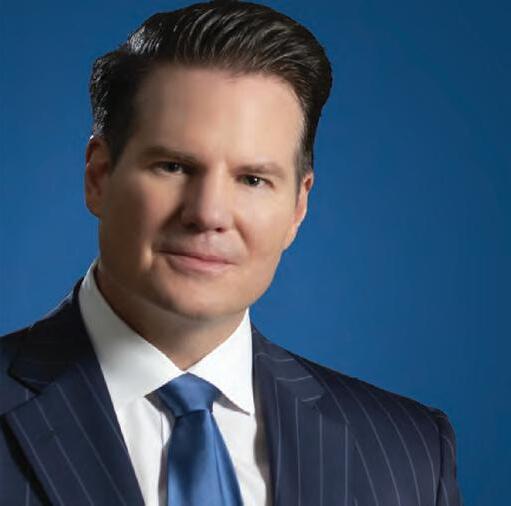








Optional: chocolate chips or chopped chocolate
Optional: desiccated coconut
Directions
Sift the flour into a bowl. Add the baking powder, oil, salt, and vanilla or lemon.
Pour the boiling water into the bowl and mix with a spoon until the dough comes together in a ball. Set aside to cool.
Once the dough has reached room temperature, see if it feels too sticky or loose to work with. If so, add more flour, a little at a time, until it is workable.
Divide dough into two equal parts.
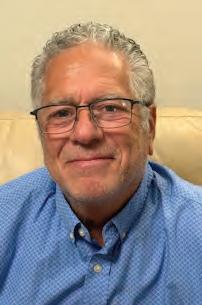
Pre-heat oven to 350 F (180 C) and line a baking sheet with parchment paper. Grease the parchment paper (with cooking oil spray).
Gently pick up the rugelach and transfer to the baking sheet, leaving a small amount of space between them (they will not grow exponentially).
Bake at 350 F (180 C) for 20-25 minutes. Cool. Dust with confectioners sugar. PJC
Miriam Szokovski is a writer, editor, and member of the Chabad.org editorial team. She also shares her cooking and baking on Chabad.org/food. Copyright Chabad.org/ Recipes. Reprinted with permission.







By Asaf Elia-Shalev | JTA
Two years after the Hamas attacks on Israel, the tragedy of Oct. 7 has become its own cinematic sub-genre. Filmmakers have rushed to bear witness, survivors have taken up cameras, and streaming platforms are now filled with documentaries and dramatizations that revisit, reimagine and attempt to process the day’s horrors.
From raw documentaries of the Nova music festival to scripted miniseries debuting this month, these works show how Israelis, and Jews around the world, are still grappling with a single day that reshaped their lives.
The desert rave that became the site of mass murder has inspired a cluster of films, each offering a different register of witness.
“We Will Dance Again” is a documentary that offers a chronological, minute-byminute account of the Oct. 7, 2023, Hamas attack on the Supernova Music Festival in Israel. The film is constructed primarily through the firsthand testimonies of over a dozen survivors, interweaving their accounts with footage they recorded on their cell phones and video recovered from the cameras of the attackers. The documentary
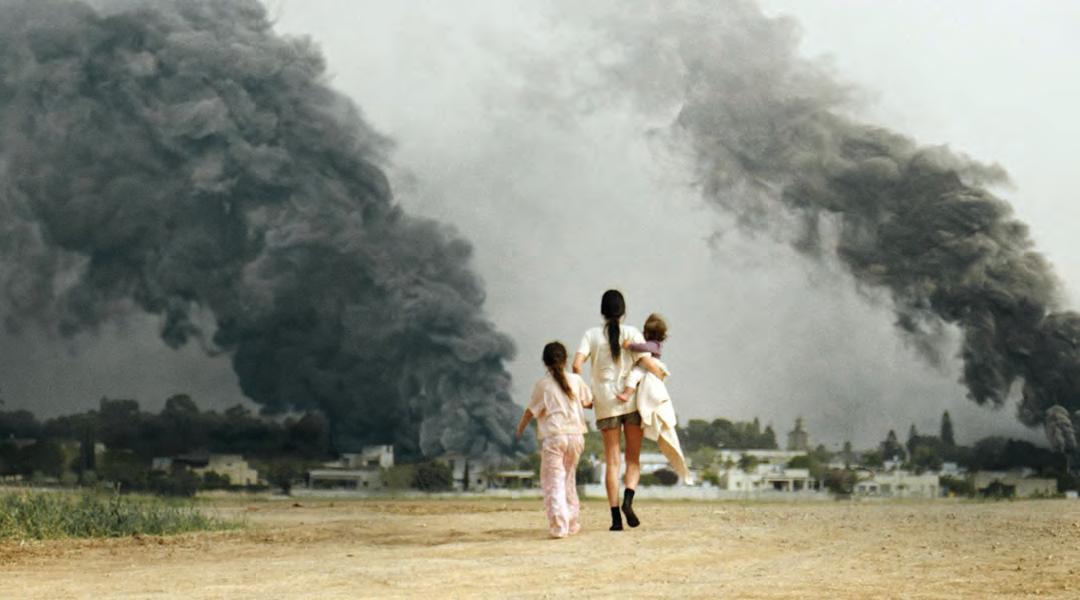
is available to stream on Paramount+.
“#Nova,” now on Prime Video, adds new layers of forensic detail by synchronizing video captured by the victims on their personal cell phones with footage recovered from Hamas body-worn cameras.
“Supernova: The Music Festival Massacre,” on Apple TV and YouTube, stitches together real-time footage and interviews to convey the disorienting chaos of the first hours.
A more intimate companion piece, “Tattooed for Life,” which played across many film festivals but is not currently
streaming, follows tattoo artist and survivor Liraz Uliel as she memorializes fellow festival-goers through a shared fractal tattoo design, an act of mourning turned into community ritual.
Other filmmakers have turned their attention to what happened in the homes, fields and kibbutzim of southern Israel.
The PBS documentary “After October 7: A Personal Journey to Kfar Aza” offers a close look at one of the hardest hit communities, combining news footage with deeply personal reflections on grief, displacement and rebuilding.
Currently in theaters, “The Road Between Us: The Ultimate Rescue” chronicles retired general Noam Tibon’s desperate drive south to save his son, journalist Amir Tibon, and his family. Blending firsthand testimony with security footage of real-time chaos, the film recounts the former general’s 10-hour, high-stakes mission across a country under siege to rescue his loved ones from their home in Kibbutz Nahal Oz. The film won the People’s Choice Award when it premiered at the Toronto International Film Festival

Two scripted productions expand these same themes. “Red Alert” (known in Hebrew as “First Light”) is a four-part miniseries that dramatizes five intertwined true stories of civilians, police and first responders, and is executive produced by Lawrence Bender, of “Pulp Fiction” fame. The series weaves these chaotic narratives together in a raceagainst-time format and premiered on Paramount+ on Oct. 7, making it one of two major scripted series to debut on the second
The second series, “One Day in October,” an anthology series based on seven distinct personal stories, debuted on HBO Max on Oct. 7, with all seven episodes available for
Many documentaries are meant as a
“Bearing Witness to the October 7th Massacre,” a 47-minute film, compiled by the Israeli military, compiles raw footage from multiple sources, including Hamas body-cam recordings, dash cams, CCTV, and victims’ phone videos, to create a chronological record of the atrocities. Due to its graphic nature, the film has not been
released to the general public and is only shown in private, invitation-only screenings for policymakers, journalists, diplomats and community leaders around the world.
A documentary created by Sheryl Sandberg, “Screams before Silence,” addresses the sexual violence and gender-based atrocities perpetrated by Hamas during the attacks. It is intended to break what critics have described as a moral silence on these war crimes and is streaming on YouTube.
“The Killing Roads” narrows its focus to the attacks on Route 232 and Highway 34, which were the main arteries where Hamas gunmen ambushed and killed approximately 250 people fleeing the Nova festival and surrounding communities. The film has been released for free viewing on platforms like YouTube and a dedicated website to combat denial of the massacre.
The PBS documentary “October 7th: Through Their Eyes” is focused on a network of Israeli volunteer archivists who immediately set out to preserve the large volume of digital evidence, including social media posts, videos, and messages, from survivors and victims before the content could be deleted or lost. The goal of their project, October7.org, is to create a widely accessible, permanent database of firsthand testimonies.
Several recent works focus on the ordeal of captivity and survival.
“The Children of October 7,” streaming on Paramount+ and hosted by activist Montana Tucker, profiles eight young survivors (ages 11-17) who share harrowing, unscripted testimonies of narrowly escaping death, witnessing the murder of family members, or enduring captivity, and highlights their resilience in the face of unspeakable loss.
Meanwhile, the short documentary “A Letter to David” sees the filmmaker revisit his onetime actor and friend, David Cunio, held in Gaza along with his brother, Ariel Cunio, after being kidnapped from Kibbutz Nir Oz. The film is a collage of family footage and archival material that functions as a cinematic plea for his return.
As the shockwaves of Oct. 7 spread around the world, another crop of films has examined how the attacks reverberated across the Jewish Diaspora and within movements for and against Israel’s war.
The documentary “October 8” (previously titled “October H8te”) captures the antiIsrael protests that erupted across U.S. cities and college campuses in the days and weeks following the attack. It is streaming on Apple TV and Amazon. “The New Jew: Days of War” follows Israeli comedian Guri Alfi as he travels across North America to explore Jewish identity and division in the aftermath.
“Torn: The Israel-Palestine Poster War on NYC Streets” documents the dueling “Kidnapped” and “Free Gaza” posters that turned city lampposts into symbolic battlefields. And “There Is Another Way” portrays the Israeli–Palestinian group Combatants for Peace, whose members struggle to uphold their belief in nonviolence even as both societies harden in grief. PJC
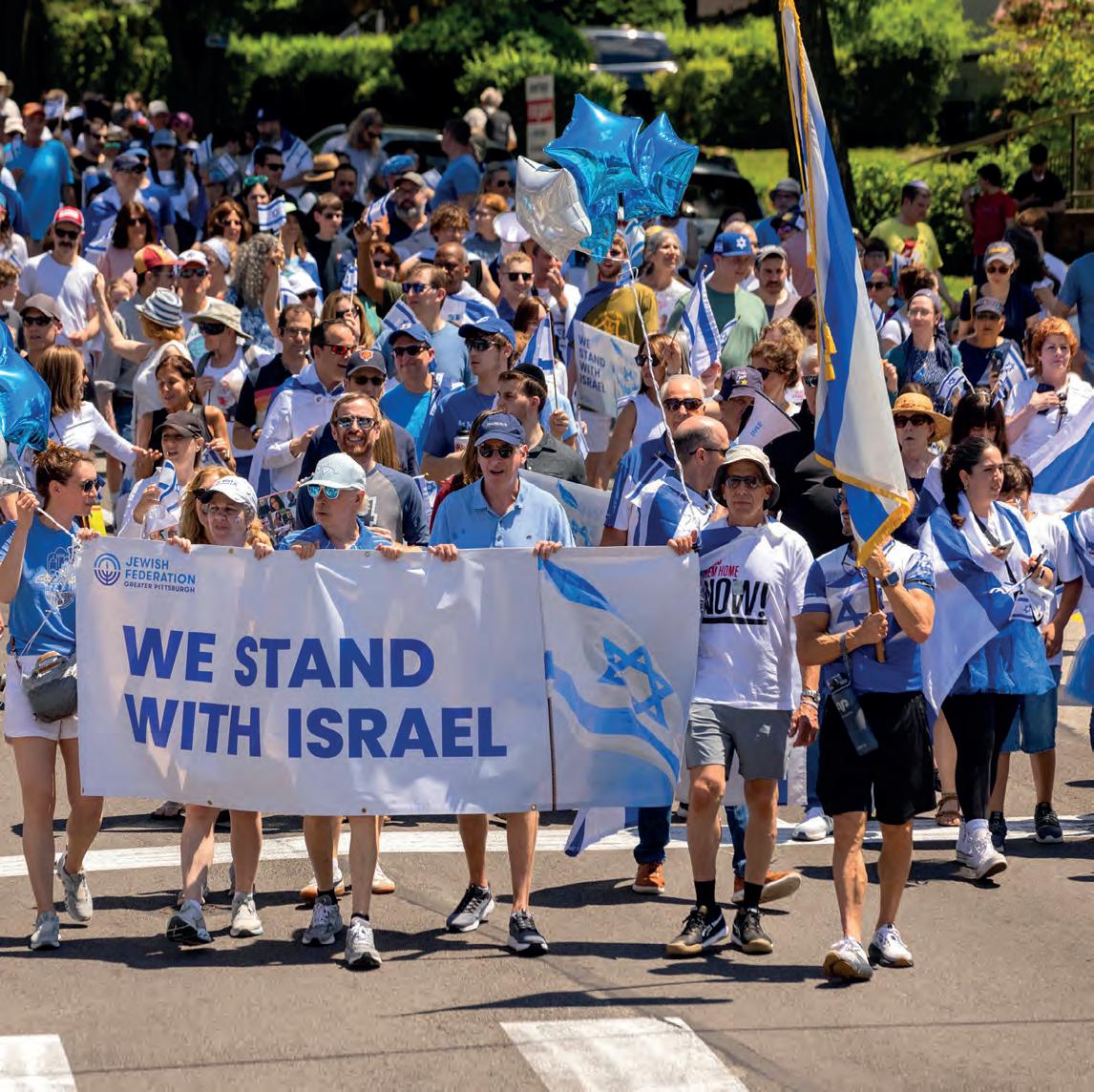

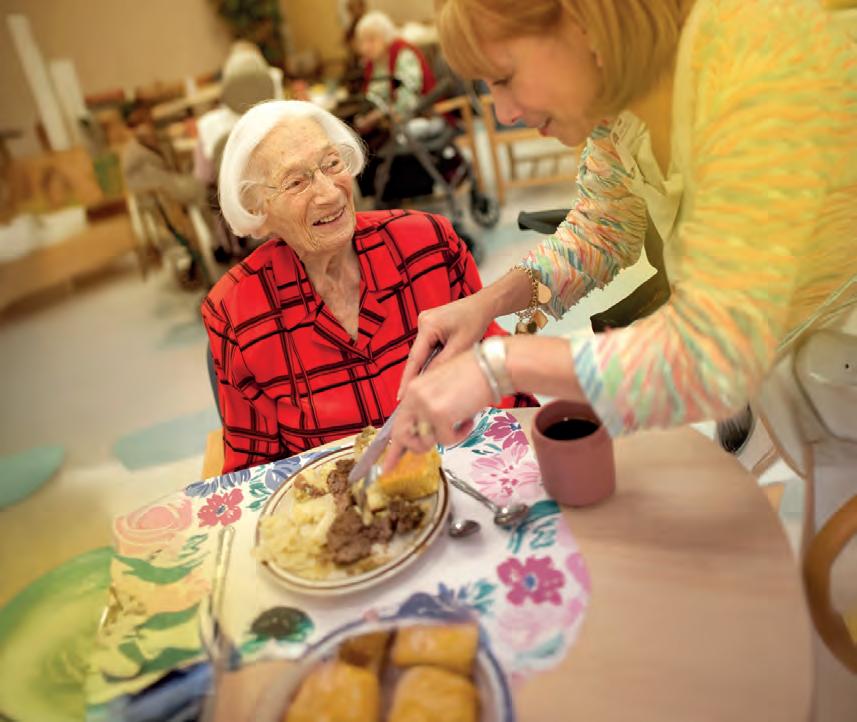

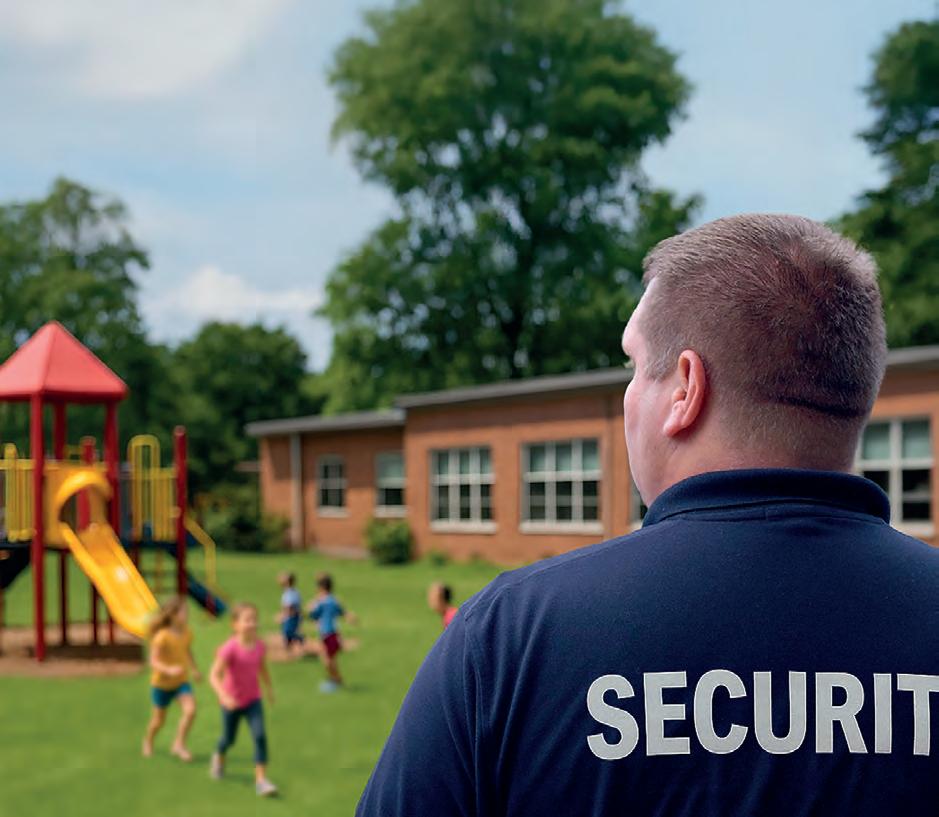
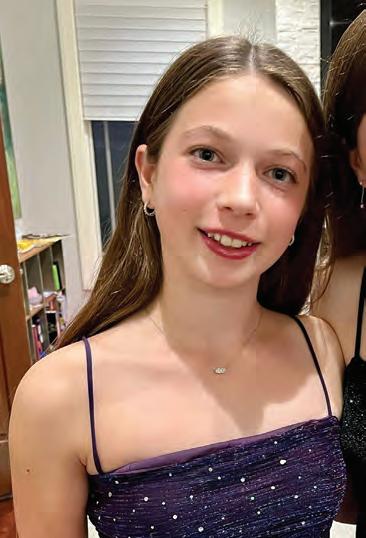

Eliza Hersh Rackoff, daughter of Melissa and Peter Rackoff, will become a bat mitzvah at Rodef Shalom Congregation on Saturday, Oct. 18, 2025. Eliza is the younger sister of Cara and the granddaughter of Gerry and Barry Brause of Larchmont, New York, and Nancy and Bill Rackoff of Palm Beach Gardens, Florida, and Pittsburgh. Eliza is a seventh grade student at Falk Laboratory School. Her many interests include playing softball and basketball, skiing (both on snow and water), practicing gymnastics, traveling and spending time at sleepaway camp in Maine. She also loves being with her family and friends. Eliza enjoys volunteering at Thriftique, where she helps sort, display and tag clothing for the Kids Corner, a program that provides free children’s clothing to local families.
Deborah Moss and Keith Somers are delighted to announce the marriage of their son, Joshua Somers, to Meera Patel, daughter of Nima and Vikram Patel. Joshua and Meera were married in Beaver Creek, Colorado. Friends and family joined the celebration, including Joshua’s grandfather, Sidney Somers. Josh and Meera live in Nashville, Tennessee. PJC


The Torah begins not with law or lineage but with wonder. “Bereishit bara Elohim.” It’s usually translated as, “In the beginning, God created the heavens and the earth.” Past tense. A past event. A completed act.
But scholars, including the always curious Rashi, suggested that the passage be translated instead into the present tense. Thus, “In the beginning of God’s creating the heavens and the earth, the earth was without form and void.” There is a universe (so to speak) between the two translations, whether you are a Hebrew grammar nerd (like me) or not. The first states a finished product; the second, an unfolding story. The ink still drying, creation not yet done.
Maybe that’s the point of the parasha. It’s not history. It’s an invitation. If creation is still happening, then we are not only its witnesses but its partners. The great 20th-century thinker and theologian Rabbi Abraham Joshua Heschel called this way of understanding the world around us — and its connection to God “radical amazement” — the capacity to stand in awe before the ongoing miracle of existence.
For years we lived not far from the Lake Michigan shore — most recently (for the few years before moving to Pittsburgh), on a bluff only a few hundred feet from the crash of waves. The wind would kick up and, even indoors with the windows closed, we could hear it. I could hear it. Calling me to come out and experience the spectacle of nature. Of God’s creation in action. And I would, going down to the shore, camera in hand.
Pittsburgh has no magnificent shoreline (three beautiful rivers, but no huge body of water), but it does have the hills. And as the colors begin to change and I trek up the big, twisty hill between the parkway and Frick Park every day, I can’t help but take in the trees, the colors, the natural beauty. God’s paintbrush in seasonal action. (Of course while paying careful attention to the switchbacks and the cliff!)
To see the world as continually being created is to meet it each morning with the wide-eyed wonder of a child who has never stopped being surprised by light, by breath, by being. By the unexpected appearance of the Aurora Borealis in the night sky. The anticipation of the solar eclipse last April.

A family of deer (annoying as they can be in our gardens) pausing in a clearing alongside the road.

Heschel taught that faith begins not in certainty but in awe. “Radical amazement” captures the essence of what Bereishit calls us to feel: that sense of standing at the edge of something vast and luminous, astonished not only that the world exists, but that we do. When we are children, that sense of amazement comes naturally. Every leaf, every shadow, every snowflake is a marvel. A child can watch an ant for 10 minutes, completely absorbed. But as adults, the world dulls around us. We move through it on autopilot, rarely pausing to notice. Heschel warned that “as civilization advances, the sense of wonder declines.” Yet Bereishit invites us to reclaim that childlike capacity to be awed — to see the world, once again, as if for the first time.
We savor a cup of sweet kiddush wine (or juice) and treasure Shabbat: Zicharon l’ma’asei Bereishit — a remembrance of creation.
In our daily liturgy we recite Asher Yatzar, thanking God “who formed the human body with wisdom” — marveling at the miraculous fact that all our openings and closings function as they should. It is a prayer of radical amazement — gratitude not for grand miracles but for the ordinariness of living, for a body that works. Moments later, we thank God for the creating light (and dark) — and the daily cycle of time in Yotzeir Or And then in Ma Rabu Ma’asecha Adonai, we echo the psalmist’s astonishment at the natural world: oceans teeming with life, trees swaying in wind, skies that change color with the setting sun. (“How manifold are Your works, O God.”)
Together, these morning blessings remind us that creation is not confined to the past tense. We wake up each day into a world that is still being created — and we, too, are renewed.
We are not spectators but participants in that ongoing Bereishit. Every act of kindness, every spark of creativity, every time we repair rather than destroy — we mirror the Divine act of bringing order from chaos, light from darkness.
As the Torah scroll begins again this week, perhaps we, too, can begin again. To look at the world as a child might: with eyes wide open, curious and astonished. To whisper Ma Rabu not only in synagogue, but while watching the rain fall or listening to a bird sing. To see in every human face the miracle Asher Yatzar celebrates.
The world is still becoming. So are we. Bereishit is not a memory — it’s an invitation to wonder. PJC
Cantor Barbara Barnett is a Jewish educator and cantor living in Pittsburgh. This column is a service of the Greater Pittsburgh Jewish Clergy Association.
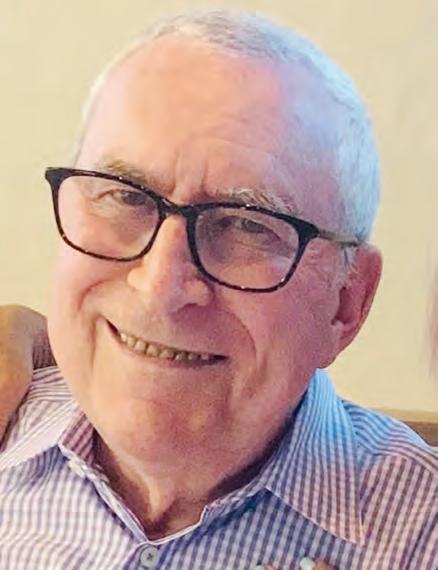
BROFF: James Bass Broff, 83, passed away on Oct. 5, 2025, surrounded by his loving family. Born to Gilbert and Rosella Broff on Aug. 6, 1942, in Pittsburgh. The owner of Broff’s Diamonds, James is survived by his sister Barbara Broff Goldman, his daughter, Stacy Walgreen, his son, Jacob Broff, his wife, Erica, his grandsons, Mitchell, Sam and Cooper, and his dear friend, Marc. Known to most as Jim or Jimmy, he was a simple man, a loving father and a devoted grandfather. A man of few words with a sharp sense of humor, and well known for his famous “Jim Broff eye roll.” He will be deeply missed by his family and friends. Services were held at West View Cemetery of Rodef Shalom Congregation. Contributions may be made to the Persad Center (persadcenter.org/ new-donation-page) or a charity of donor’s choice. schugar.com
CLIFFORD: Ellen Ruth Clifford, 67, of Coraoplis, Pennsylvania, on Friday, Oct. 3, 2025. Beloved daughter of the late Harriet and Leslie Clifford; loving sister of Jackie (the late Arnie) Greenwald of Pittsburgh, Amy (Warren) Gothelf of Delray Beach, Florida, and Mitch Clifford of Littleton, Colorado; nieces, nephews and AVS staff and friends. Resided at Allegheny Valley School in Coraoplis, where she had loving and attentive care throughout her lifetime. Ellen’s spirit was joyful and unforgettable. She brought laughter, love and affection to everyone who knew her. She will be deeply missed, but her memory will continue to dance, sing and smile in our hearts. Private graveside services and interment held on Thursday, Oct. 9, 2025, at Beth Shalom Cemetery. The family wishes to extend a special thank you to all of her compassionate and devoted caretakers at Allegheny Valley School. Contributions may be made to Merakey Allegheny Valley School, Avs.merakey.org; Special Olympics, support.specialolympics.org. Arrangements entrusted to William Slater II Funeral Service, Scott Twp. 412-563-2800.
JUDD: Edna Judd, (Adie to friends and family), passed away on Sunday, Oct. 5, 2025. She was 101 years old; born on Jan. 8, 1924 to Lena and Morris Herr. She met Elmer Judd at a party in 1945. He said that he immediately knew that she was the girl for him. Together, they lived a very full and rich life, for almost 74 years of marriage. They were very active socially, traveling the world and enjoying winters in Florida. They had a very close and loving bond. They are survived by their two children, Michele Mackey (Lou) and Barry Judd (Fran Steger),who were their pride and joy; as well as several grandchildren and great-grandchildren. Adie
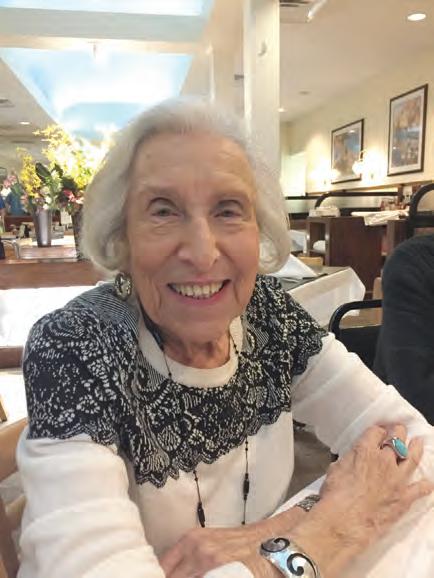
was strong-willed and a loving and caring wife and mother. She was a great cook, always expressing her love through her cooking and insisting that we take food home with us. Playing tennis with friends, as well as bridge and mahjong were among her favorite activities, as well as spending time with family and friends. Our parents also attended the symphony and other cultural events on a regular basis. In addition to her roles as wife, mother, sister and friend, Adie worked for many years as an administrative assistant to the dean of the Graduate School of Public and International Affairs at the University of Pittsburgh. We wish to honor the many people who helped with our mother’s care over the past six and a half years. Shawntee, Todey, Jennifer and Norma, your love and support was invaluable to her and, maybe, even more so to us. The last 10 months at Asbury Heights were difficult, but the compassionate care from many staff members on Evergreen will always be remembered. Pam, Sammy, Stacey, Diane, Thelma, TJ and so many others were amazing. Knowing you has truly been an honor. Graveside services were held on Oct. 9, 2025. Memorial contributions can be made to Family Hospice. PJC
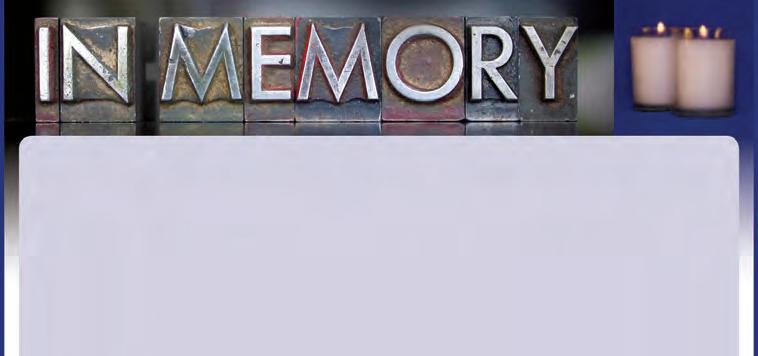
Yahr
















Contact the Development department at 412-586-2690 or development@jaapgh.org for more information. THIS WEEK’S YAHRZEITS —












Sunday October 19: Joseph Adler, Shirley Barr, Jean Singer Caplan, Saul Eisner, Louis Friedman, Sam Goldberg, Yitzchok Moshe Issac Goldstein, Jack Greenberg, Sadye R Kantor, Charles Leefer, Louis Levy, Violet C Miller, Alexander Reich, Flora May Shadden, Bertha Ethel Shamberg, Andrew H Shapiro, Adolph Weinberger, Esther H Winkler, Ada Marie Wolfe
Monday October 20: William Abrams, Mary Astrov, Peter Davidson, Edward A Feinert, Abraham Hansell, Sylvia B Karpo, Allen Lebovitz, Allen W Lebovitz, Harry D Linder, I Edward Plesset, Jesse Rogers, Sara Sadie Sobel, Anna Sokol, Dr Daniel Solomon, Fannie Stein, Mary Stoller, Harry Ulanoff, Donald Eli Witkin, Rose Zasloff
Tuesday October 21: Jack Caplan, Morris Chamovitz, Isaiah Cooper, Laurel B Devon, Rose K Freed, Harry Freedman, Pauline J Isaacs, Sarah Jacobson, Rose Bigman Kalmanowitz, Dr Paul Kaplan, Anna Klee, Ethel I Krauss, Ida Magdovitz Krouse, Jacob Joseph Kurtz, Milton Lehman, Dr Leonard M Monheim, Samuel Rosenfeld, Emanuel Rosenthal, Edith F Simon, Joseph Weintraub, I Leroy (Lee) Yahr
Wednesday October 22: Betty Ainsman, Harry Barash, Bernard M Bennett, Ruth Mermelstein Cramer, Rhoda Fisher Jonas, Freda Leff, Jacob Levenson, Lillian B Martin, Charles Monheim, Traci Michele Perilman, Sadie Schnitzer
Thursday October 23: Fagie Cohen, Oser Cohen, Robert Cohen, Edward Dobrushin, I Louis Eckhouse, Morris Freeman, Israel Gershon, Dorothy Goldstone, Marlene Harris, Albert Hendel, Jacob Katz, Louis A Livingston, David Miller, Eugene Moskovitz, Morris Pechersky, Peter Pink, Sarah Ruth Saul Rosenberg, Berde S Ruttenberg, Sarah Sable, Myer Skirboll, Louis Stern, Rose Wyatt, Bertha Cooper Young, Henry L Zacks
Friday October 24: Gabriel Abramovitz, Morris Beck, David Cohen, Evelyn Hepps Cushner, Fanny Davidson, Sarah Samuels Finkelhor, Bertha Handelman, Adolph Klein, Louis Klein, Bertha Kruman, Rhea K Landau, Ruda Bella Rose, Mollie Finegold Ruttenberg, Israel Samuel, Jacob Schnitzer, Abe Shulman, Tibie Verk, Abraham Wechsler, Sigmund Yahr
Saturday October 25: Yetta Angel,Benjamin Bondy, Herman Brown, Sarah Schnitzer Elling, Mollie Goldenberg, Sorly Cukerbaum Gordon, Harold Greenberg, Jay Helfant, Miriam Shifra Heller, Benjamin Herskovitz, Jacob Kaufmann, Samuel Levinson, Anne B Litman, Belle Rosenson, Meyer Rosenthal, Adolph Rutner, Samuel Shire, Morris Shulgold, Ben Spokane, Samuel J Sugerman, Meyer Veshancey, Jacob Weinstein
Sunday, October 19, 2025 // 5:00 PM Carnegie Mellon University, Jared L. Cohon University Center, McConomy Auditorium
5032 Forbes Avenue, Pittsburgh, PA, 15213
Join author and historian Pamela Nadell in conversation with New York Times columnist and 2013 Pulitzer Prize winner Bret Stephens about her new book: Antisemitism, an American Tradition. They’ll discuss the long history of antisemitism in American life and explore how understanding the past can help us stand up and fight back against hate.





















“Sometimes the strongest people are the ones who fight battles you know nothing about.”


was deemed eligible for release under the ceasefire and hostage release deal between Israel and Hamas.
By Times of Israel Staff
APalestinian prisoner convicted of the 1989 rape and murder of an Israeli teenager was set to be released from prison Monday as part of the ceasefire and hostage release deal, the Haaretz daily reported, despite the court ruling at the time that the crime was not an act of terrorism.
In April 1989, 13-year-old Oren Baharami, from Bat Yam in central Israel, was lured to an abandoned room in the Armenian Monastery in Jaffa by Gaza resident Ahmed Mahmed Jameel Shahada.
Shahada and an accomplice then raped and murdered the teen and left his body in the monastery, where it was found days later.
The murder was deemed to have been criminally motivated, meaning that it was not an act of terror carried out for nationalistic reasons, and Shahada was sentenced to life in prison. According to Haaretz, he was due for release in 2036.
Despite not being charged with terrorism, the report said that Shahada




In total Israel was set to release nearly 2,000 Palestinian prisoners, including 250 serving life terms, 1,722 Gazans, including 22 minors, captured amid the war but uninvolved in the Oct. 7 massacre, and the remains of 360 Gazans. Of these 250 life-term prisoners, 115 were to return to their homes in the West Bank and East Jerusalem, while another 135 were to be deported to locations abroad, which could include Gaza.
The report noted that on the list of prisoners serving a life sentence to be freed, Shahada is the only prisoner without any known link to a terror organization.
Speaking to the news outlet, Baharami’s mother said she was struggling to understand the decision to release her son’s murderer.
“The murder wasn’t recognized as terrorism, and over the years, no one ever updated us,” she said. “It takes my breath away.”
“It’s a shock to me — I never imagined he would be included in the deal,” she said. “It’s very hard for me to process this.” PJC

The Branch Announces a New Support Group Are you the parent or guardian of a teen or adult with disabilities?
Join our new weekly support group, a safe and welcoming space to share resources, find encouragement, and connect with others who understand your experiences.
Mondays, 12:00 – 1:30 p.m.
The Branch offices: 2609 Murray Ave, 15217
Beginning Monday, November 3rd
Professionally facilitated by retired psychotherapist Mona Strassburger, this group is designed to help you navigate challenges, celebrate victories, and build lasting support.
To register or for questions, contact Alison Karabin at 412.325.0039 or akarabin@thebranchpgh.org

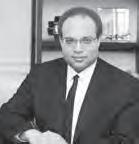





Smith-Rosenthal Team
Jason A. Smith & Caryn Rosenthal
Jason: 412-969-2930 | Caryn: 412-389-1695 Jasonasmith@howardhanna.com Carynrosenthal@howardhanna.com


Mayer, Realtor Squirrel Hill Office C: 412-760-0412 O: 412-421-9121x225 sherrimayer@howardhanna.com HowardHanna.com









































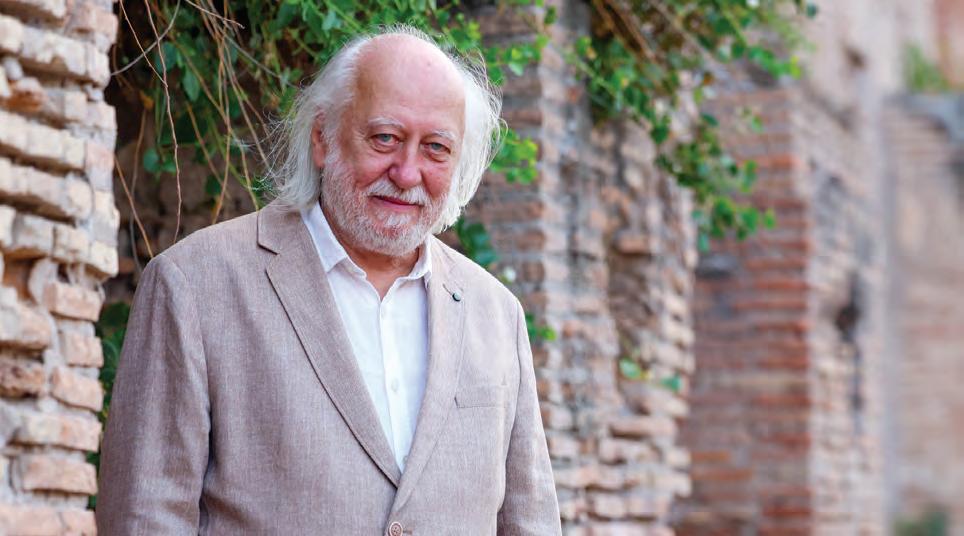
interviewer in 2018. “My grandfather was
JEWISH JUSTICE ON THE PENNSYLVANIA SUPREME COURT
JUSTICE WECHT IS THE ONLY JEWISH ON THE PENNSYLVANIA SUPREME
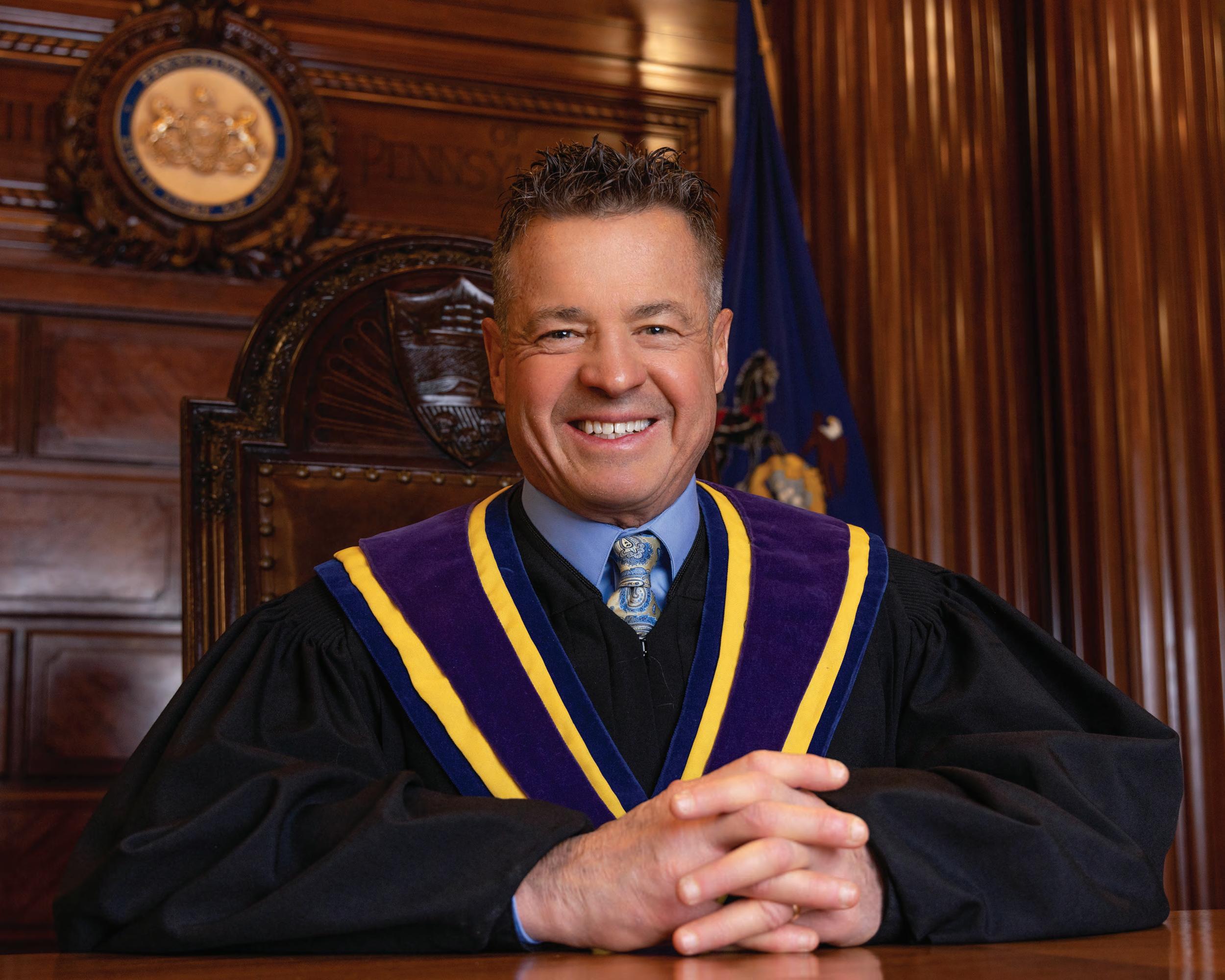
ELECTION DAY | TUESDAY, NOVEMBER
POLLS OPEN FROM 7:00 A.M. TO 8:00
POLLS OPEN FROM 7:00 A.M. TO 8:00 P.M.
POLLS OPEN FROM 7:00 A.M. TO 8:00 P.M.
POLLS OPEN FROM 7:00 A.M. TO 8:00 P.M.
ELECTION DAY | TUESDAY, NOVEMBER
LAST DAY TO REGISTER : MON., OCT.
LAST DAY TO REGISTER : MON., OCT. 20
LAST DAY TO REGISTER : MON., OCT. 20
ELECTION DAY | TUESDAY, NOVEMBER 4
LAST DAY TO REGISTER : MON., OCT. 20
LAST DAY TO REQUEST A MAIL-IN or ABSENTEE BALLOT:
POLLS OPEN FROM 7:00 A.M. TO 8:00 P.M.
LAST DAY TO REQUEST A MAIL-IN or ABSENTEE BALLOT: TUES., OCT. 28
LAST DAY TO REQUEST A MAIL-IN or ABSENTEE BALLOT: TUES.,
LAST DAY TO REGISTER : MON., OCT. 20
LAST DAY TO REQUEST A MAIL-IN or ABSENTEE BALLOT: TUES.,
LAST DAY TO RETURN YOUR COMPLETED BALLOT:
LAST DAY TO REQUEST A MAIL-IN or ABSENTEE BALLOT: TUES., OCT. 28
LAST DAY TO RETURN YOUR COMPLETED BALLOT: TUES., NOV. 4, 8:00 PM
LAST DAY TO RETURN YOUR COMPLETED BALLOT: TUES., NOV.
LAST DAY TO RETURN YOUR COMPLETED BALLOT: TUES., NOV. 4,
LAST DAY TO RETURN YOUR COMPLETED BALLOT: TUES., NOV. 4, 8:00 PM


JFCS Director of Family Services Stefanie Small was named a member of Spertus Institute’s Leadership Certificate in Combating Antisemitism program. The four-month program gives senior leaders of Jewish organizations tools and confidence to respond to antisemitism.
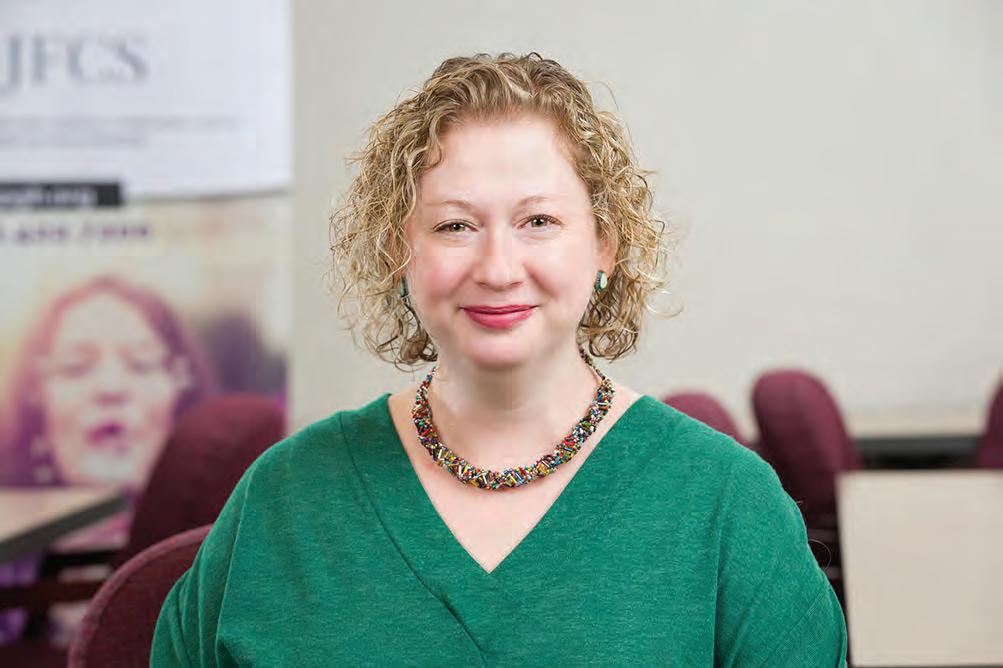
During a trip to the Ohel, the resting place of the last two Lubavitcher Rebbes, in Queens, New York, students from Yeshiva Schools of Pittsburgh stopped en route to pray. The pre-Rosh Hashanah trip served as a mechanism to inspire students.
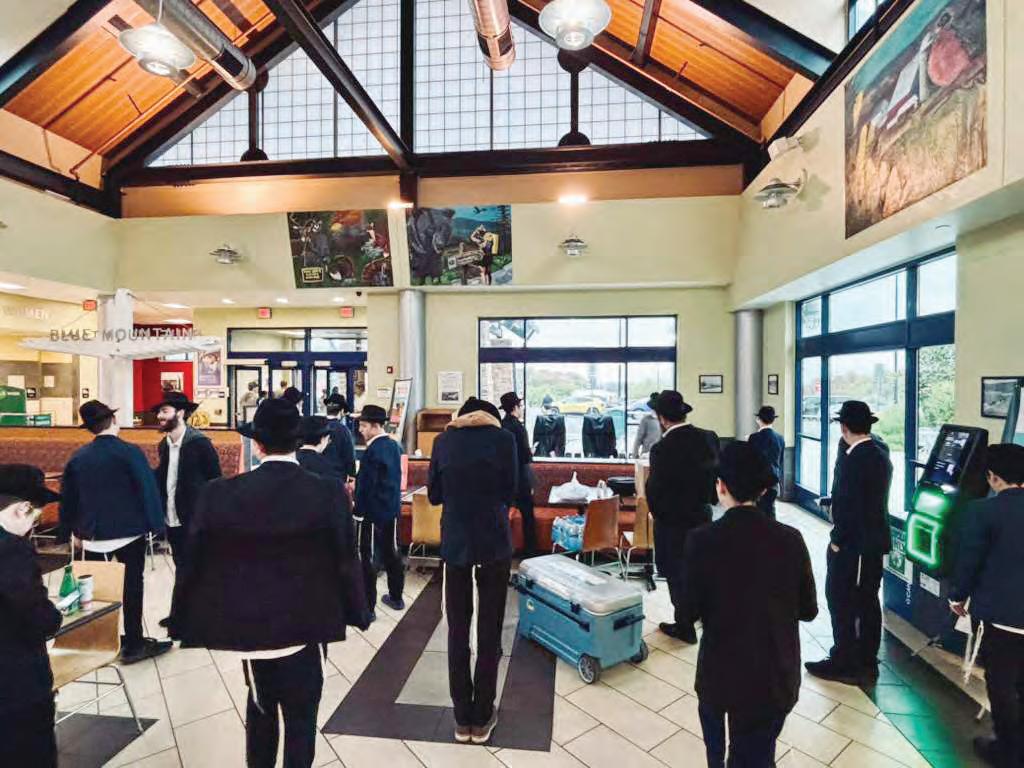
Legendary local shofar blower Michael Supowitz shared his talents with The Branch during a Rosh Hashanah celebration. The program, which operated in collaboration with Friendship Circle of Pittsburgh, enabled people living in group homes and other
All eyes on Sukkot
Pasta prep
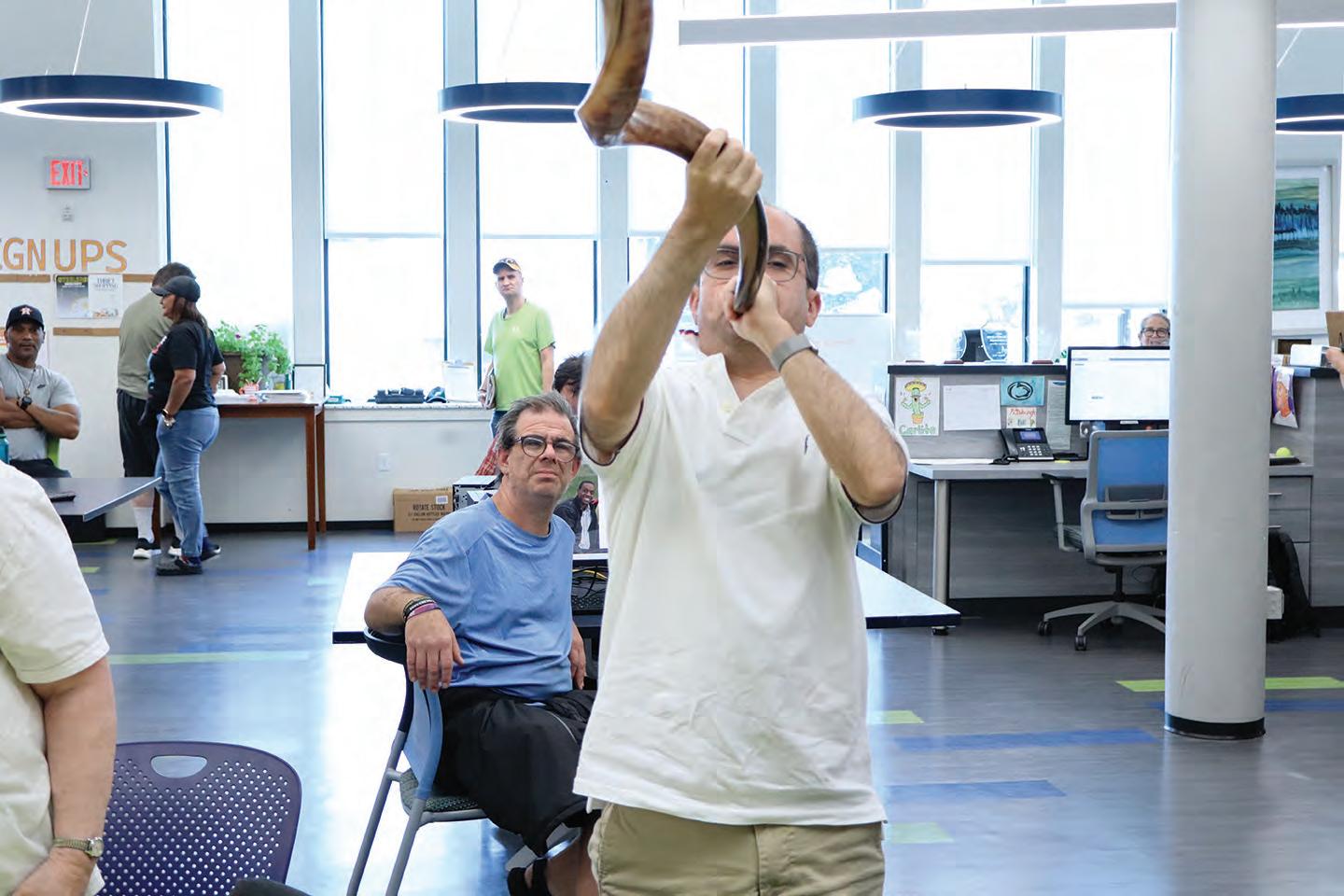
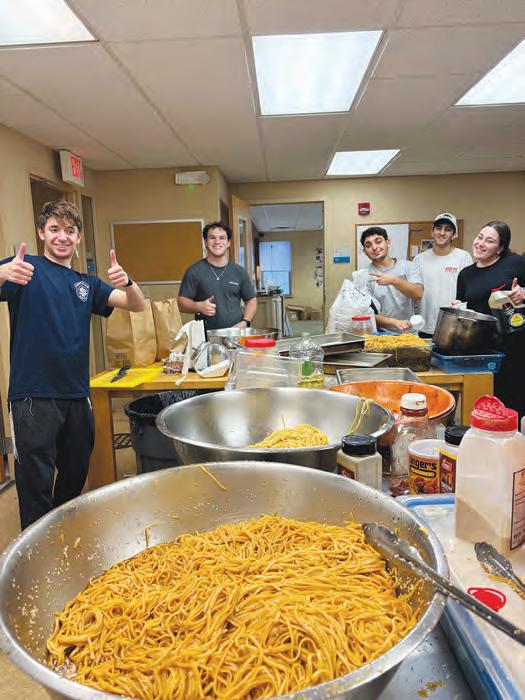
Students cooked up a storm in preparation of a parents and family weekend. Hosted by Chabad at Pitt, the Oct. 3-5 gathering featured meals, meetups and services.
Community Day School hosted Fall Fest. The Oct. 5 program fea tured cookie decorating, sukkah craft making, a pumpkin patch a
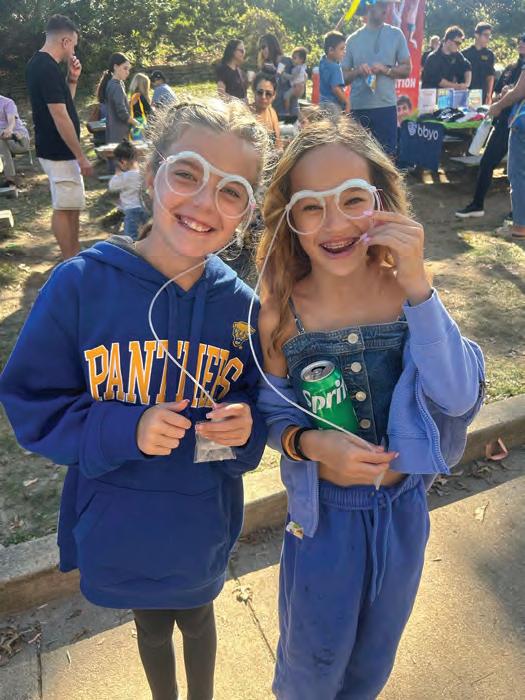
Friendship Circle of Pittsburgh welcomed members for Middle School Mentors. The program, which pairs middle school children with younger friends, treated participants to brunch and an Italian soda bar in an effort to bolster connections and
